The Sound of Magic: Episodes 2-6 (Series review)
by solstices
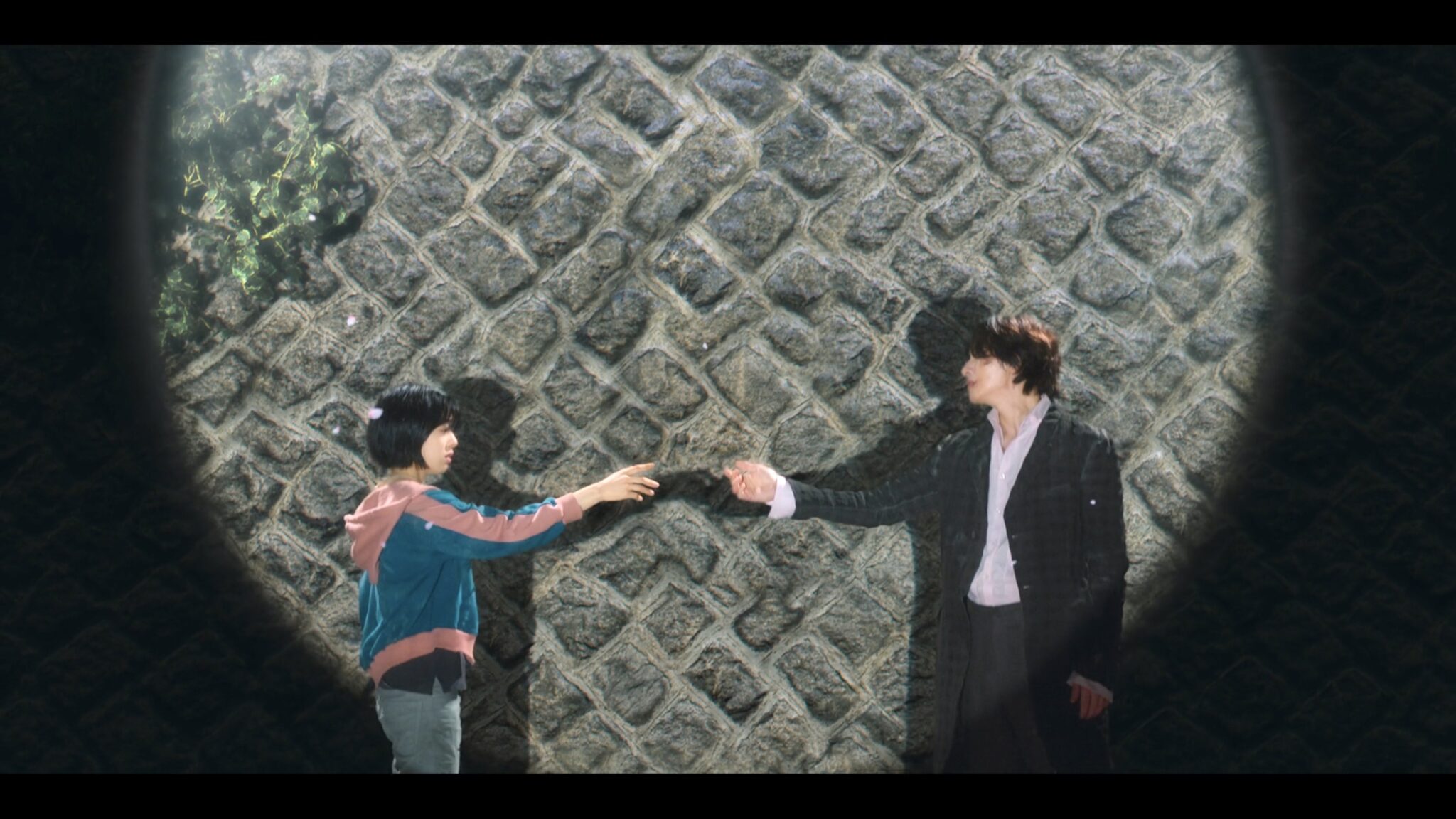
A tale of dreams and hope at its core, this magical musical takes us on a ride through wistful nostalgia and splendid dreamscapes to arrive at the question — what does it mean to grow up?
SERIES REVIEW
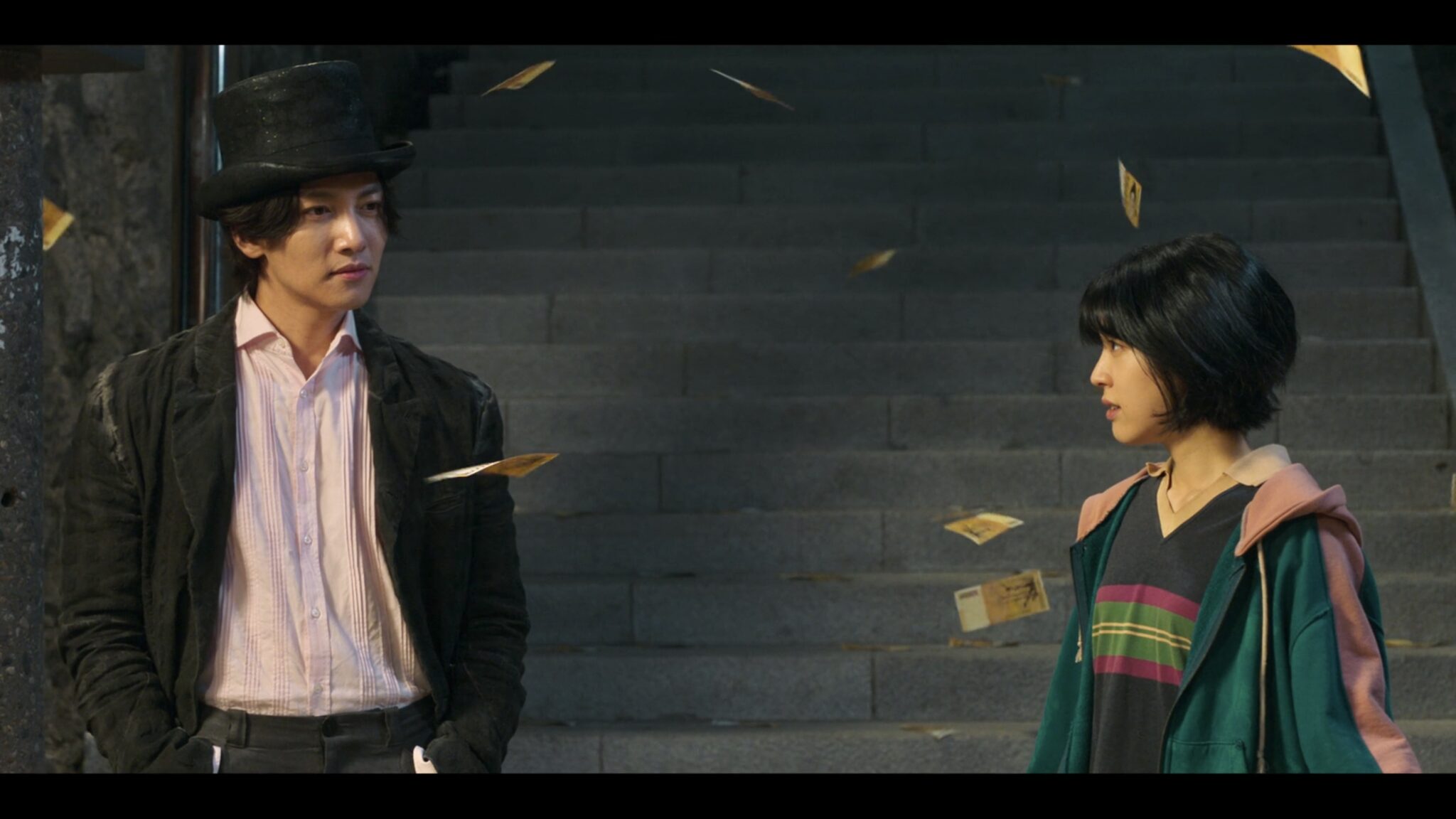
How do I even begin to sum up the magic of this show? As much as I love writing, mere words can never hope to capture the sense of awe and wonder that The Sound of Magic evokes. If you haven’t watched it already, I strongly recommend that you do, if only to experience its magical world for yourself.
Beneath all the splendor — scores of (unfortunately fake) money bills raining from the sky, anyone? — Ri-eul’s magic is always undergirded by earnest sincerity. Even when he gets beaten up by Ah-yi’s creditors for his trick, he reassures her and invites her to learn magic from him. The scene then segues into a heartfelt duet with one of my favorite lyrics from the show — “It hurts because you look so comfortable leaning back into sorrow again” — which perfectly encapsulates Ah-yi’s resignation to weather through her pain so she can take on the mantle of being an adult much earlier than she ought to.
It’s this theme of growing up that’s woven throughout the drama. Children who wish to grow up quicker, and an adult who wishes he never had to — all pushed to the brink by the adults who pressure children to grow up just the way they selfishly want.
(The first part of this review contains story spoilers; the second part is an overall spoiler-free review.)
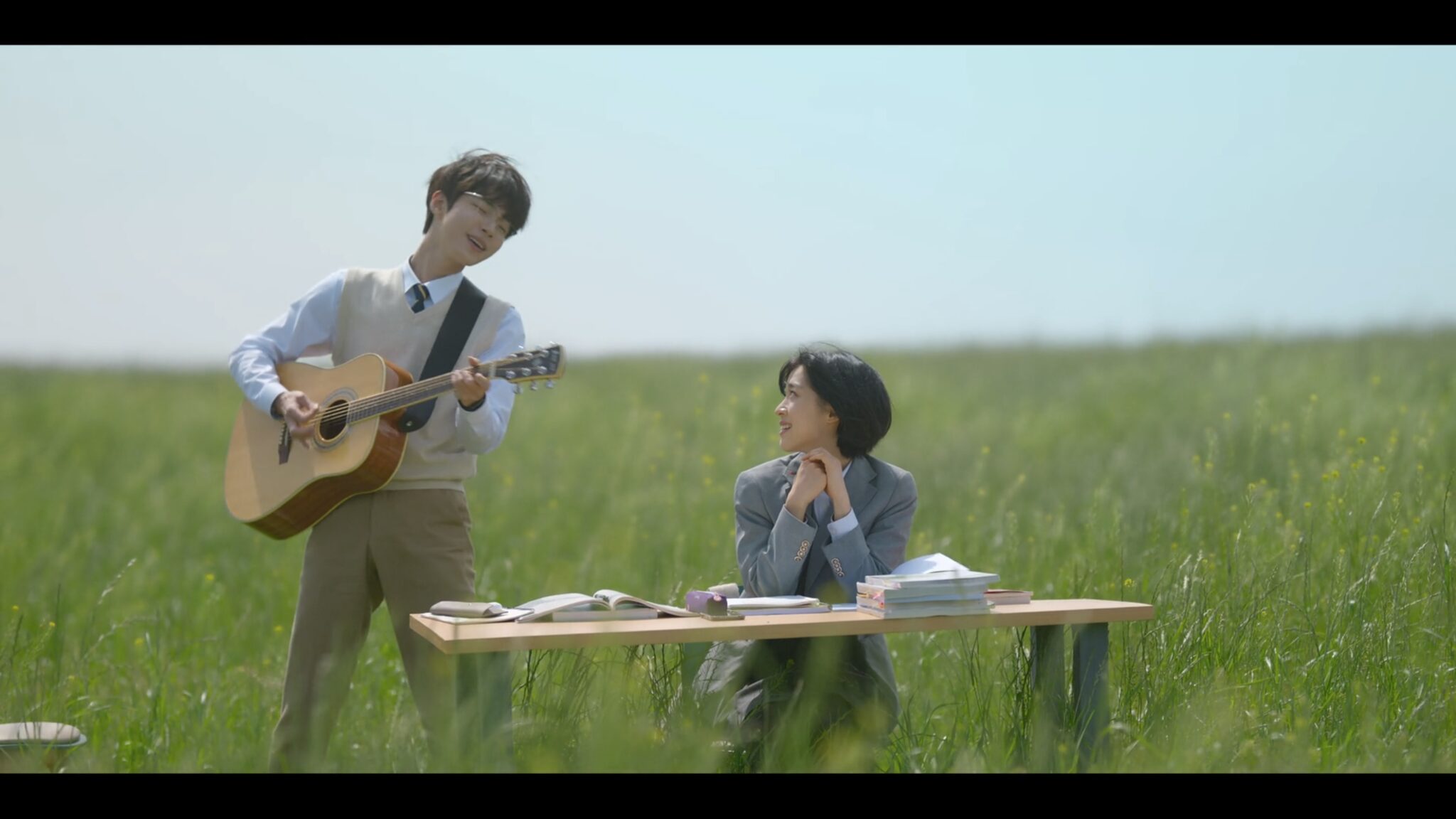
THE STORY
One thing this series does well is the development of its characters in a layered way that makes them feel like fully-realized people. We get to see more of Il-deung as the show progresses, and he’s a nuanced character to say the least. His interest in Ah-yi quickly grows into a full-blown crush — he even writes a speech on his palm before talking to her, ha — and there’s a very cute interlude where he imagines serenading her in an open field.
Unfortunately, upon hearing from Ha-na that Ah-yi could be involved with the magician in exchange for money, he doesn’t know how to deal with his concern and jealousy. He ends up offering Ah-yi money to mess up on her tests and do his portfolio assignments for him, in a misguided attempt to steer her away from the magician and towards him instead. Oof.
Il-deung’s actions become a lot more sympathetic, though, when we get a glimpse of his circumstances. He’s stifled and micromanaged by the worst kind of helicopter parents — my excitement upon seeing Yoo Jae-myung soured pretty quickly — and he’s expected to follow the smooth asphalt road to success that they’ve paved for him.
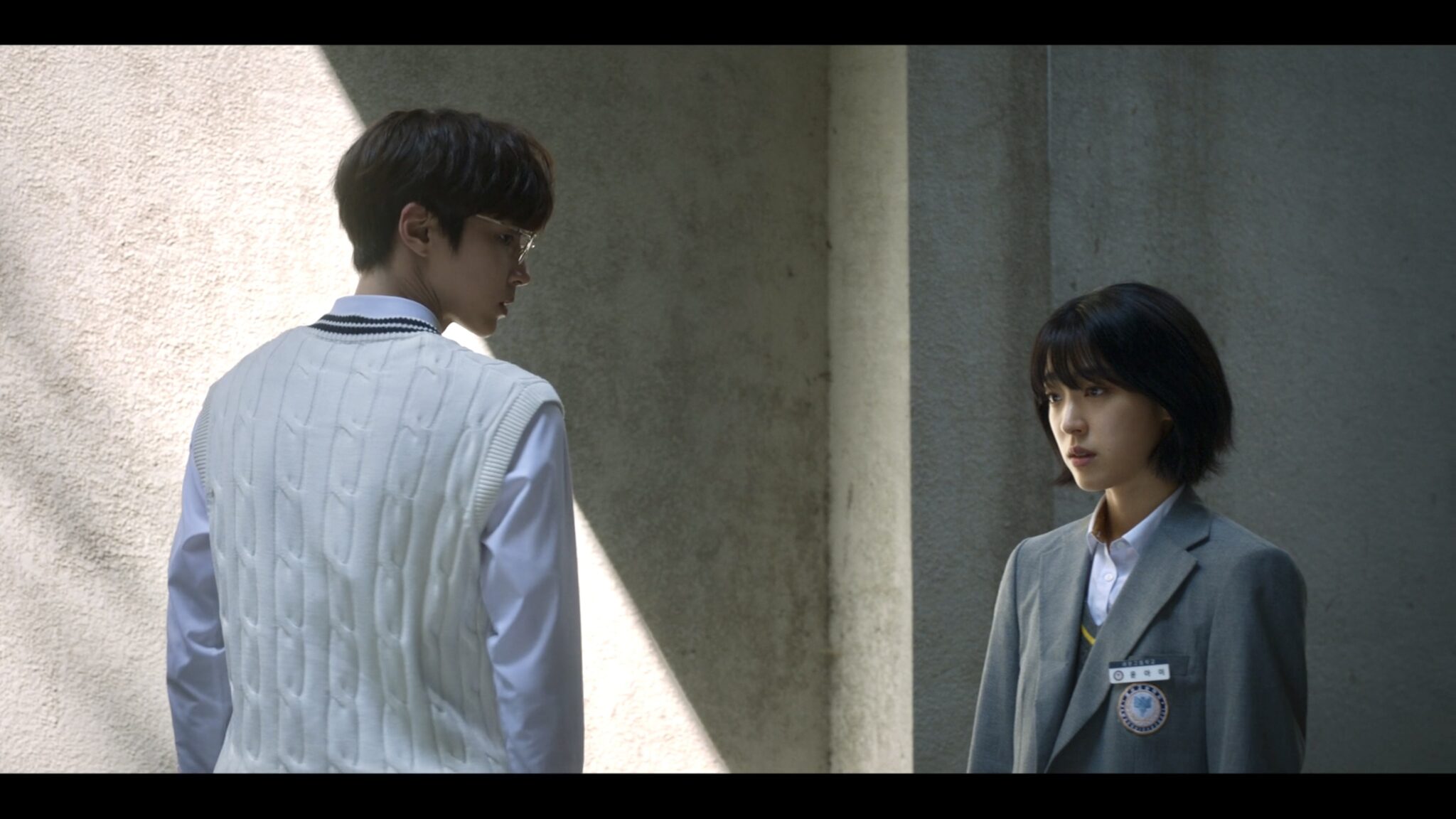
Driven by poverty and desperation, Ah-yi accepts Il-deung’s offer, but the deal soon goes awry when someone photographs Il-deung handing her money. It gets escalated all the way to the dean, and though Ah-yi ends up blurting out the truth of their agreement, the school covers it up by handing Il-deung a good conduct award for “helping out a peer in need.”
It’s an awful and cruel way to put Ah-yi in her place, reminding her of her lowly social status and humiliating her in front of the entire cohort. The fiasco also drives a deeper wedge between Ah-yi and Il-deung — her relief that she didn’t get expelled, even at the cost of her pride, makes her feel pathetic. Il-deung’s guilt just makes her feel even smaller; she doesn’t even have the luxury of honesty.
Looking back, it wasn’t money that pushed me to the brink, she thinks, but the adults.
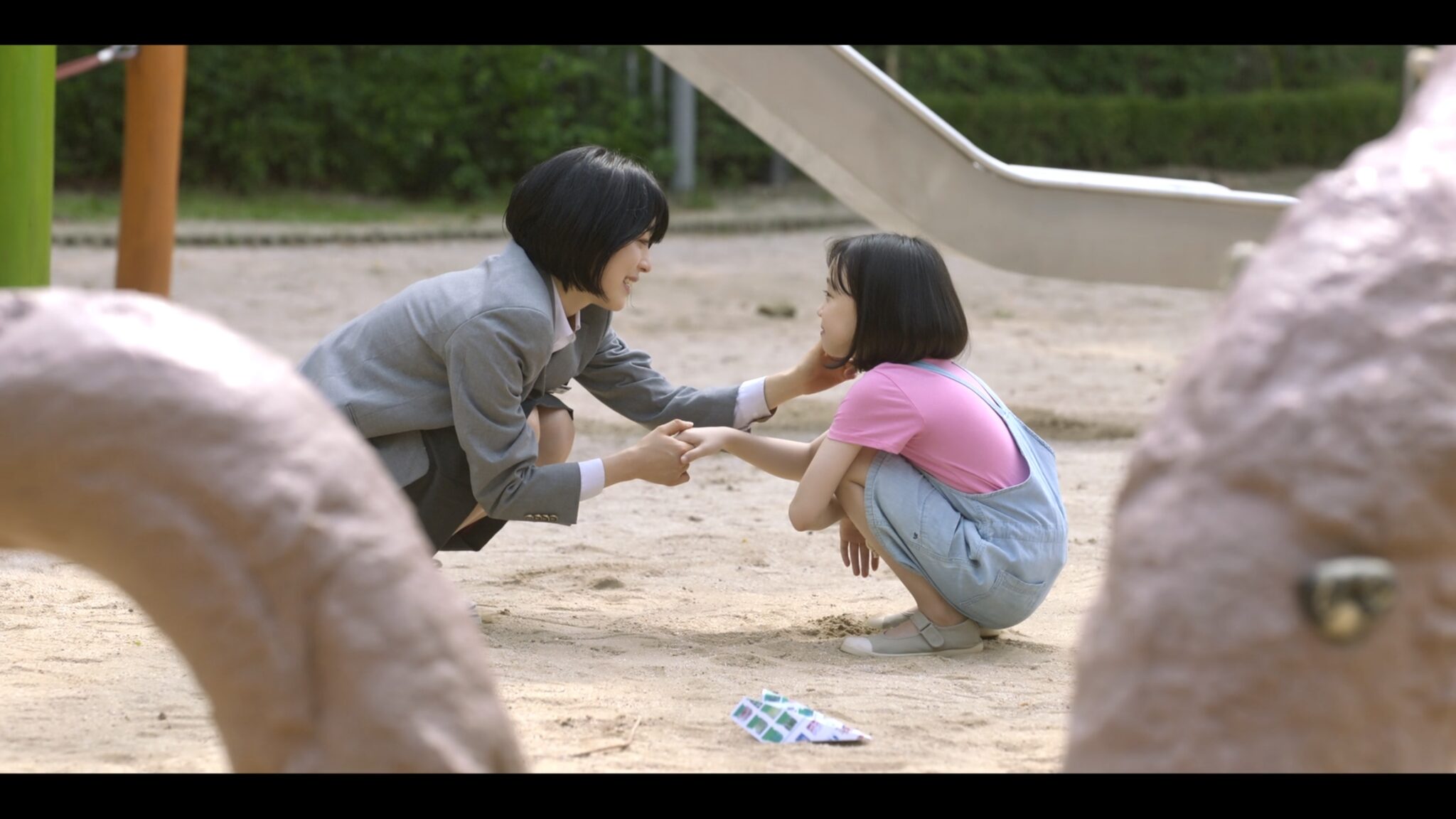
The only thing keeping her holding on is Ri-eul’s magic; when he catches her crying alone at the amusement park, he takes her on a carousel ride that has them soaring through the sky. In another scene, when Ah-yi has reached her lowest point, he transports them through time and has her meet her younger self.
Recognizing her childhood pain all too well, Ah-yi tells her younger self that she never gave up and is still fighting to live to this day, reassuring little Ah-yi that she’ll pull through, too. It’s the words Ah-yi’s always longed to hear, and it makes it even more meaningful that Ri-eul didn’t simply tell her the words, but had her say it for herself.
Ri-eul advises Ah-yi that she should do the things that she wants, too, just as much as she has to do the things she doesn’t. It gives Ah-yi the push she needed to chase happiness, and she begins learning magic from him. During their lessons, she’s able to let go of her worries for a while, and it’s the brightest we’ve ever seen her smile.
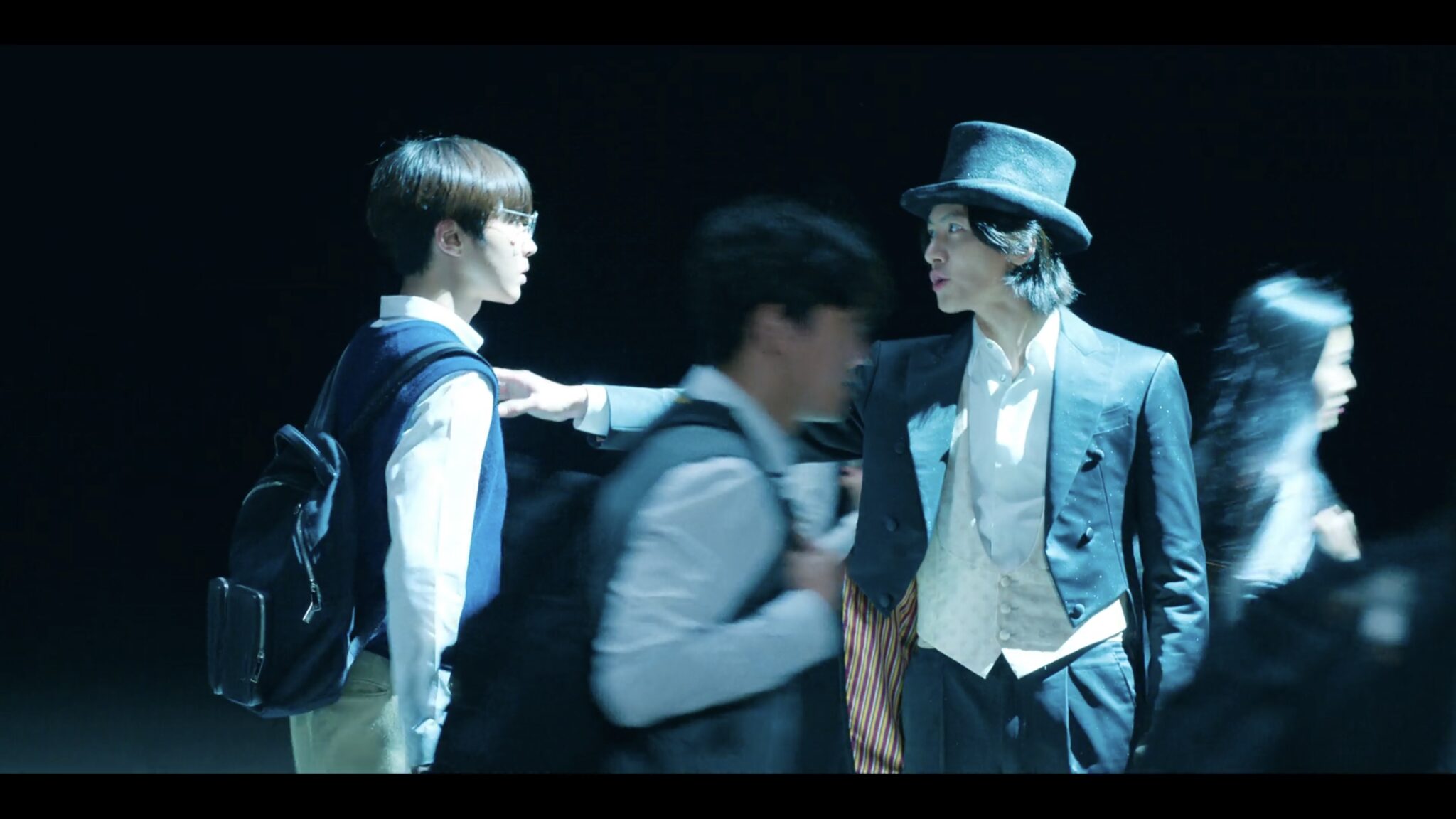
Il-deung meets Ri-eul for the first time when he follows Ah-yi to the amusement park and ventures in after she leaves. Ri-eul’s extremely astute, and he instantly recognizes Il-deung’s posturing for what it is — a desperate need to be the best, because that’s what his parents expect of him.
Ri-eul transports Il-deung onto an asphalt road, where countless students are feverishly taking a test. It unfolds into an impeccably-choreographed and synchronized musical number, which serves as a metaphor for the mindless rat race towards an arbitrary definition of success. Afterwards, Ri-eul leaves Il-deung with a yellow origami butterfly on a playing card, and it’s clear the magician has left a profound impact on the smothered boy.
Il-deung finds himself returning to the amusement park yet again, partly out of indignance over how widely Ri-eul makes Ah-yi smile with his tricks, and partly out of a newfound fascination with magic. Ri-eul indulges him, putting on a magic show for the pair and startling Il-deung with a fake spider. (Il-deung literally jumps up onto his chair, HAHA.)
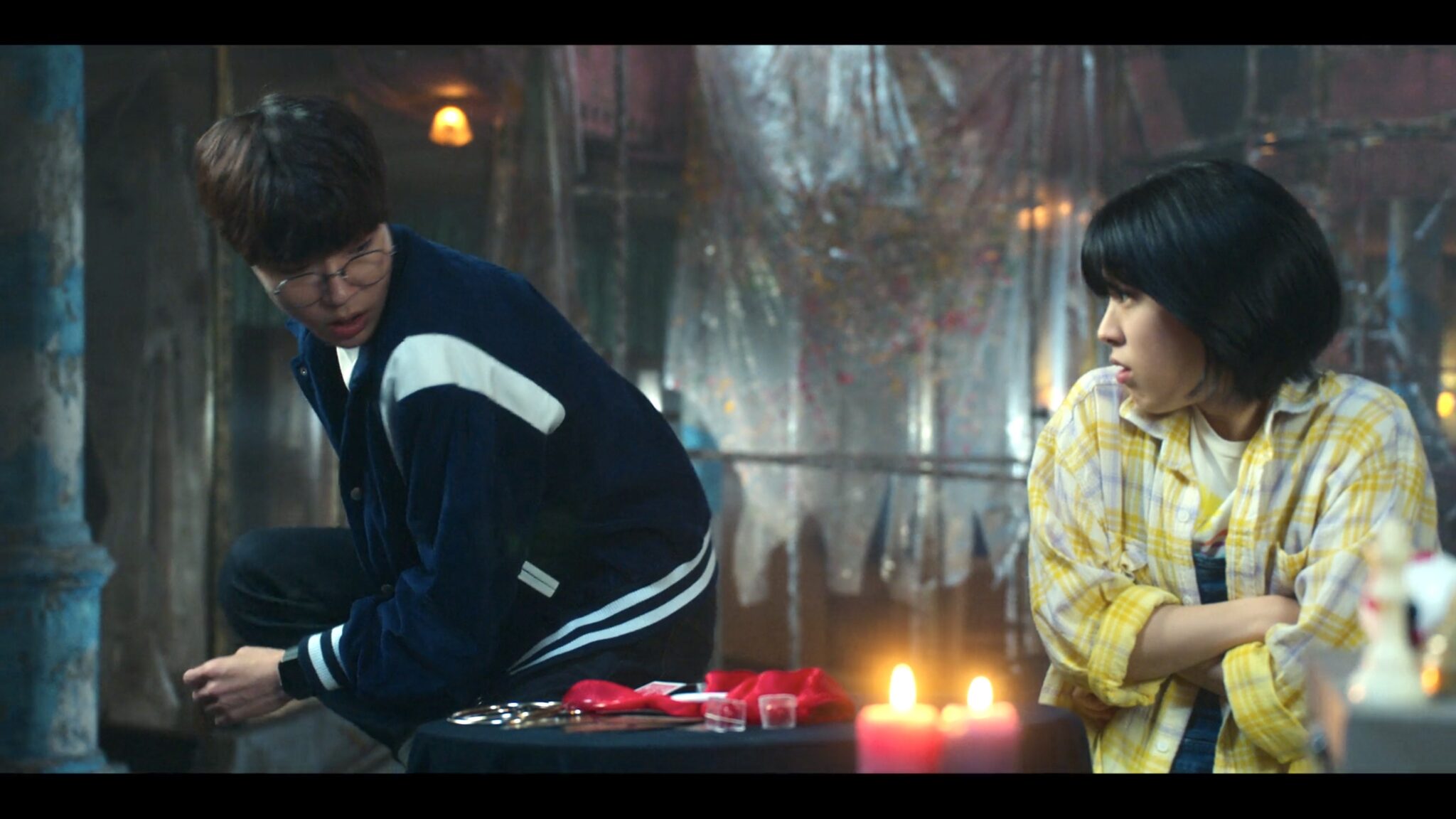
Unfortunately, the lighthearted moments are soon undercut. Ah-yi’s deadbeat dad returns, but only for a night; Ah-yi wakes up the next morning only to find that her dad has absconded with her money. When he calls, it’s the last straw, and she finally lays it out like it is. He’s running away like a coward, yet he expects her to take on the responsibilities he left behind. She’s scared, exhausted, and sick of having to carry her burdens like an adult when she isn’t even one.
Heartbroken and lost, Ah-yi sings to the moon, and there’s a nice bit of wordplay here — the lyrics say that the night comforts the child to hurry and go to sleep, but the word for “go to sleep” can also mean “grow up.” It makes the last lines of the song, “Good night, my childhood dreams / Goodbye, my past days,” land a little more poignantly.
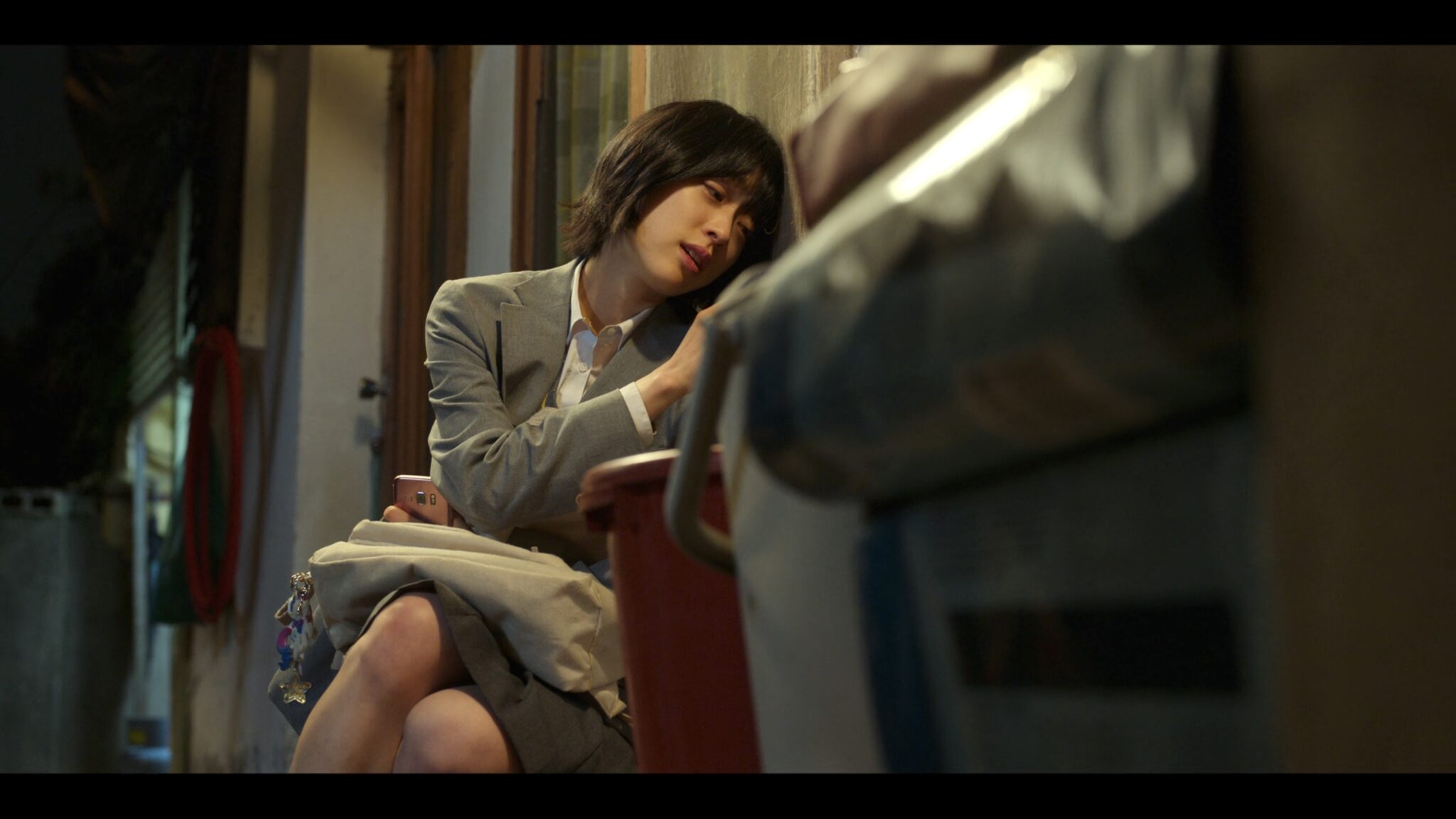
The drama only gets darker from there. Ha-na, a lot more malicious in the drama than in the webtoon, plants a hidden camera to expose Ri-eul’s true identity. It ends up capturing an incriminating video of him seemingly attacking a man, which she then uses to plant seeds of doubt in Ah-yi and Il-deung’s minds.
Worse yet, Ha-na confronts Ri-eul at the amusement park, insulting his magic and calling him a fraud. Her denigration of his magic enrages Ri-eul, causing him to fly at her in a rage and demand for the hidden camera she’s pinned onto her jacket. In their tussle, Bella’s parrot cage gets knocked over, and a distraught Ri-eul advances upon Ha-na to strangle her.
All that — combined with vague sightings and victim allegations of a man in a cape — gets Ri-eul suspected for a neighborhood robbery case, as well as the murder of a high school student.
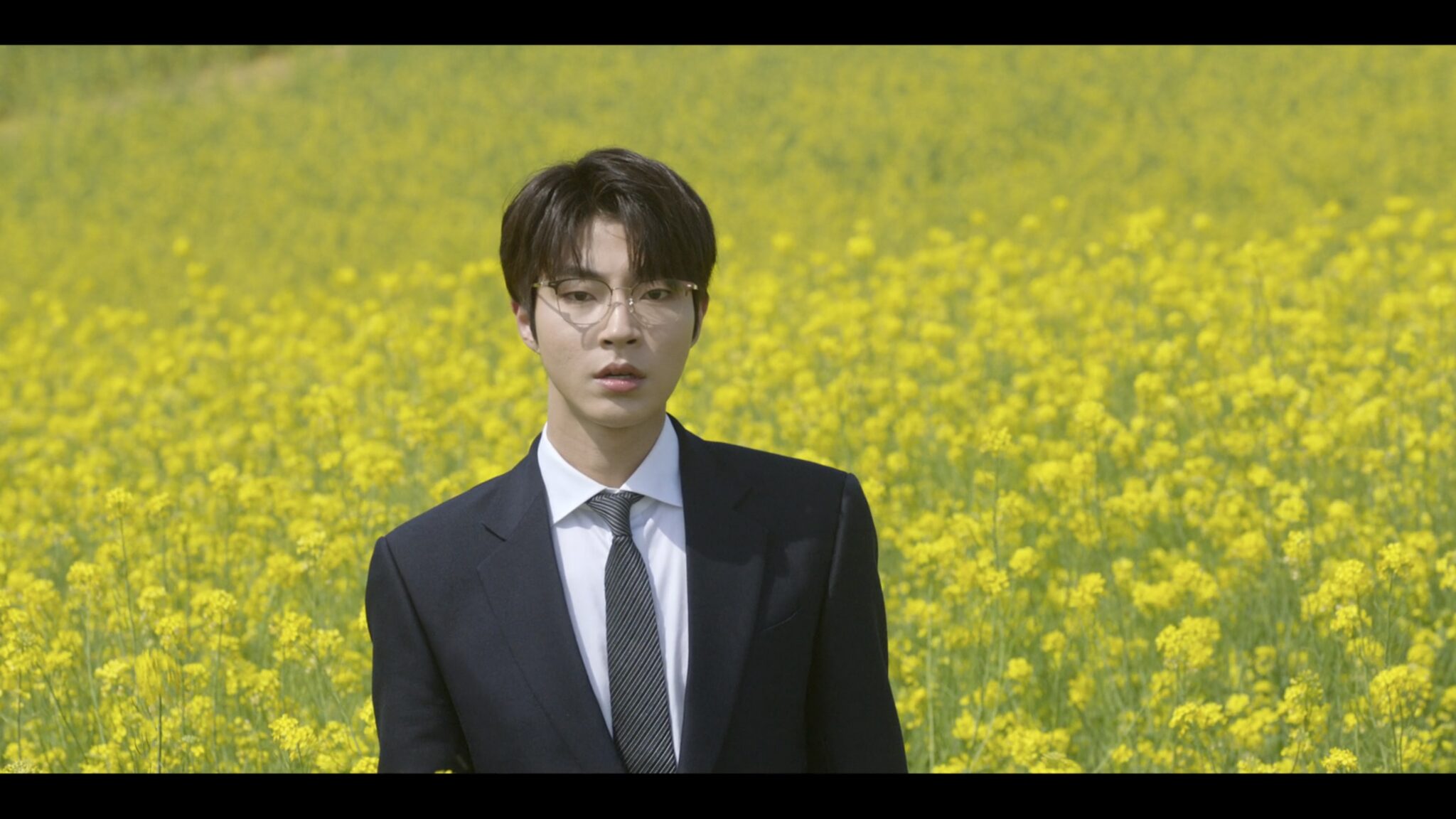
There’s someone who can vouch for Ri-eul’s innocence, though, and it’s Il-deung. After a heated argument with his parents, in which they shamed him for his budding interest in something as useless for his future as magic, Il-deung seeks solace in the abandoned amusement park. Struck by another one of his debilitating migraines, he sees his past accolades, then his projected future self, sharply dressed and driving an expensive sports car.
Before long, he realizes that he’s going too fast to even see his surroundings clearly, and that’s when the tunnel opens up into a beautiful flower field. Stunned by its vastness, and the hope it represents, Il-deung begins to question what success and happiness truly mean to him.
He wakes up on the stage with Ri-eul’s cape draped over him, and all around him are bright yellow flowers, chalked onto the stage.
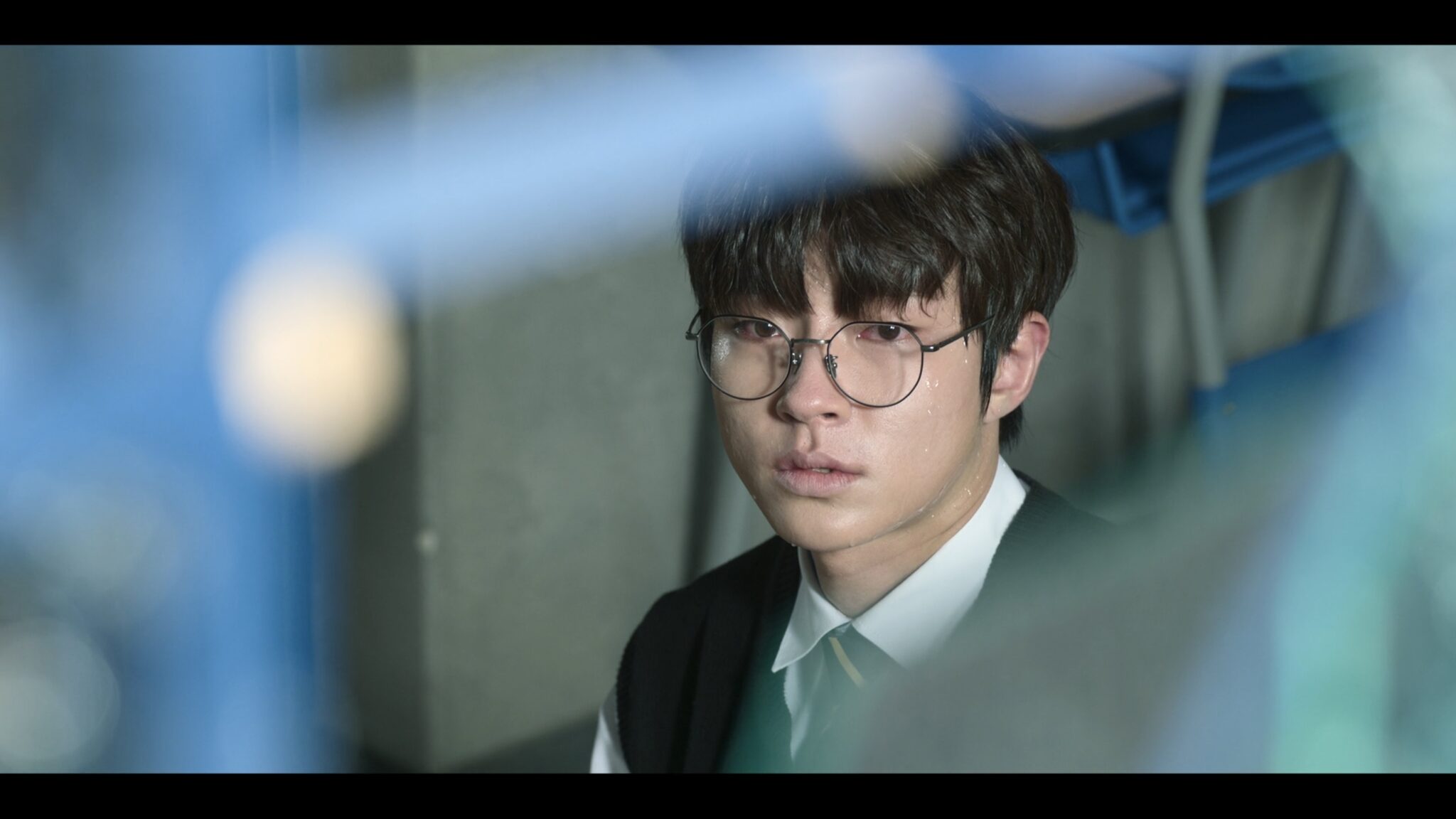
Ri-eul’s magic seems to fall apart, though, when Ah-yi’s creep of a boss returns, claiming that Ri-eul made him disappear that night by pushing him over the railing. Il-deung tries to assert Ri-eul’s alibi, but both his parents and the higher-ups dissuade him from defending a societal failure like the magician. Both their reproachful words and the judgmental gaze of his peers begin to overwhelm him, and the splitting migraine returns — broken only by the chair that Il-deung hurls at a window.
Internally calling out for Ri-eul, he asks despondently if the magician can break the curse of the asphalt road. Someday, Il-deung wonders, will I be able to break free from this cold path and run through a vast field of flowers just like you?
It’s a powerful moment, heightened by Hwang In-yup’s phenomenal acting, and I wish the episode closed on this note instead of shoehorning in a scene for the murder mystery’s dramatic effect. Sigh.
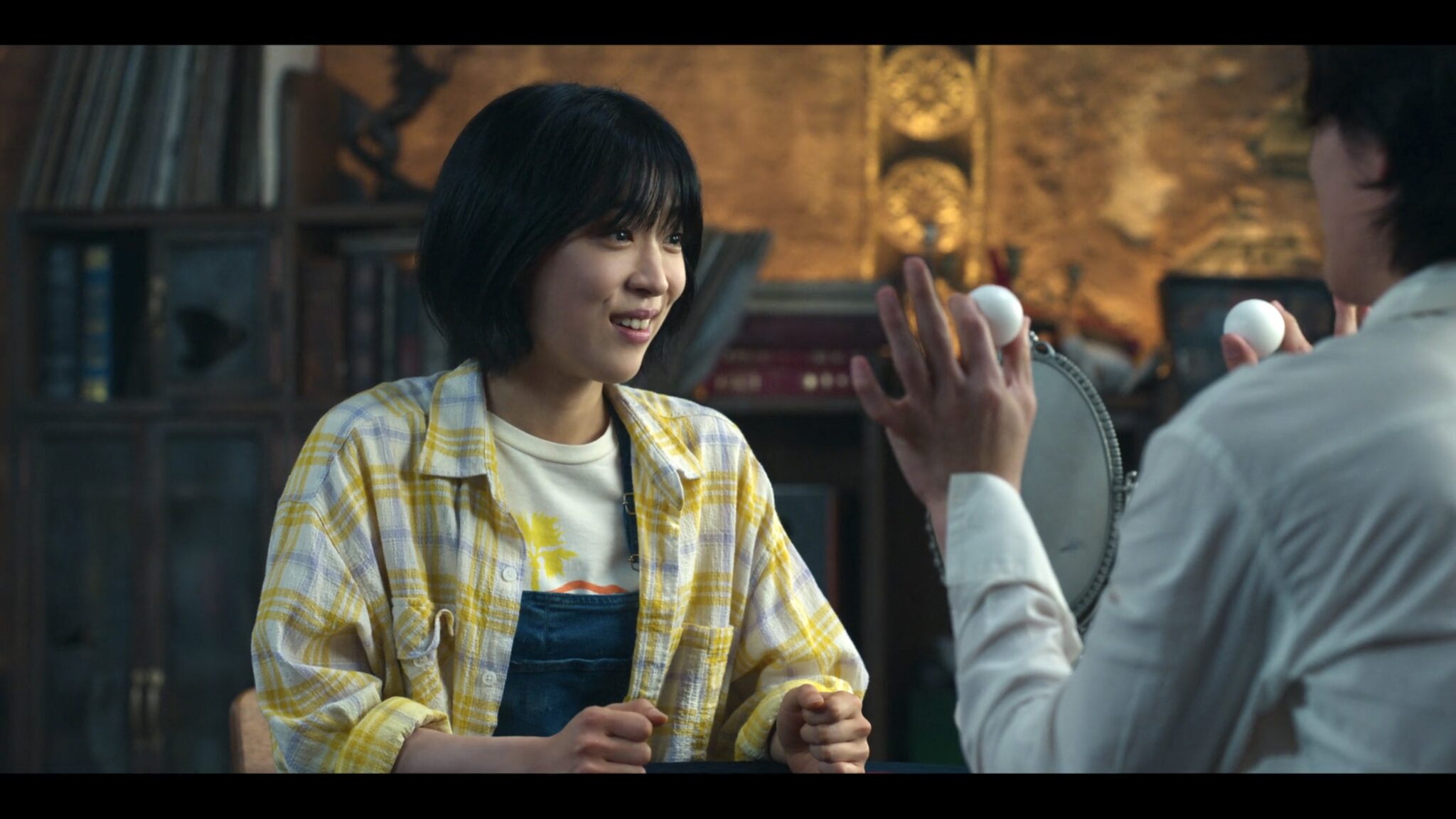
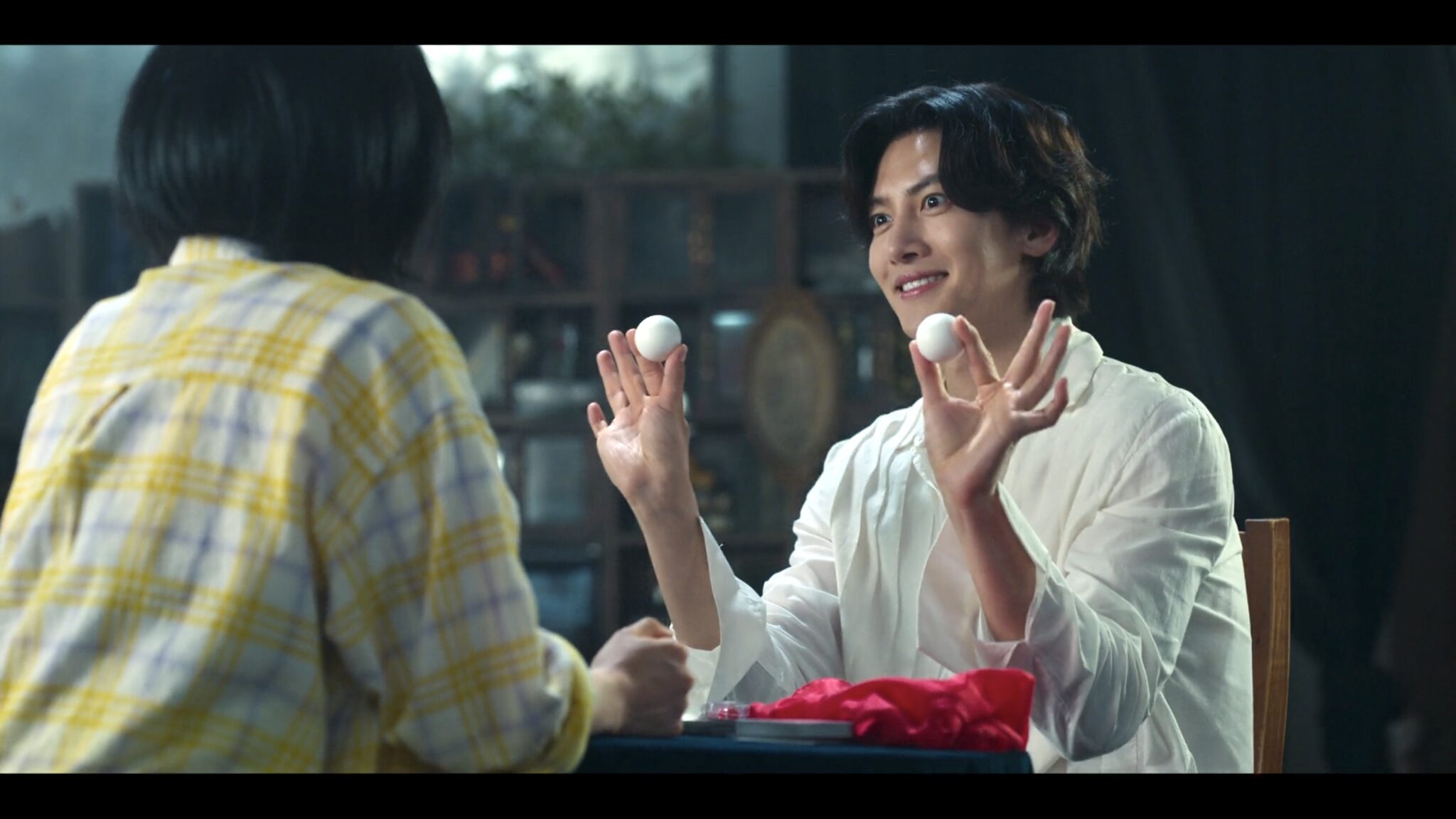
In any case, the murder investigation continues, and Ri-eul is apprehended by the police. Turns out Ri-eul’s real name is Ryu Min-hyuk, and he’s a thirty-year-old high school dropout who escaped from a psychiatric facility and has a history of criminal suspicions. Lost and confused, Ah-yi sings a forlorn, heartbreaking song — perhaps it’s not that she wishes to believe him, but that she wants to say that she does.
To her, Ri-eul represents her hopes and dreams; he’s the one person that validated her struggles and told her it’s okay to follow her heart. Losing that means falling back into inescapable darkness once again, and she’s understandably terrified that the ray of light Ri-eul had given her might all just be a lie.
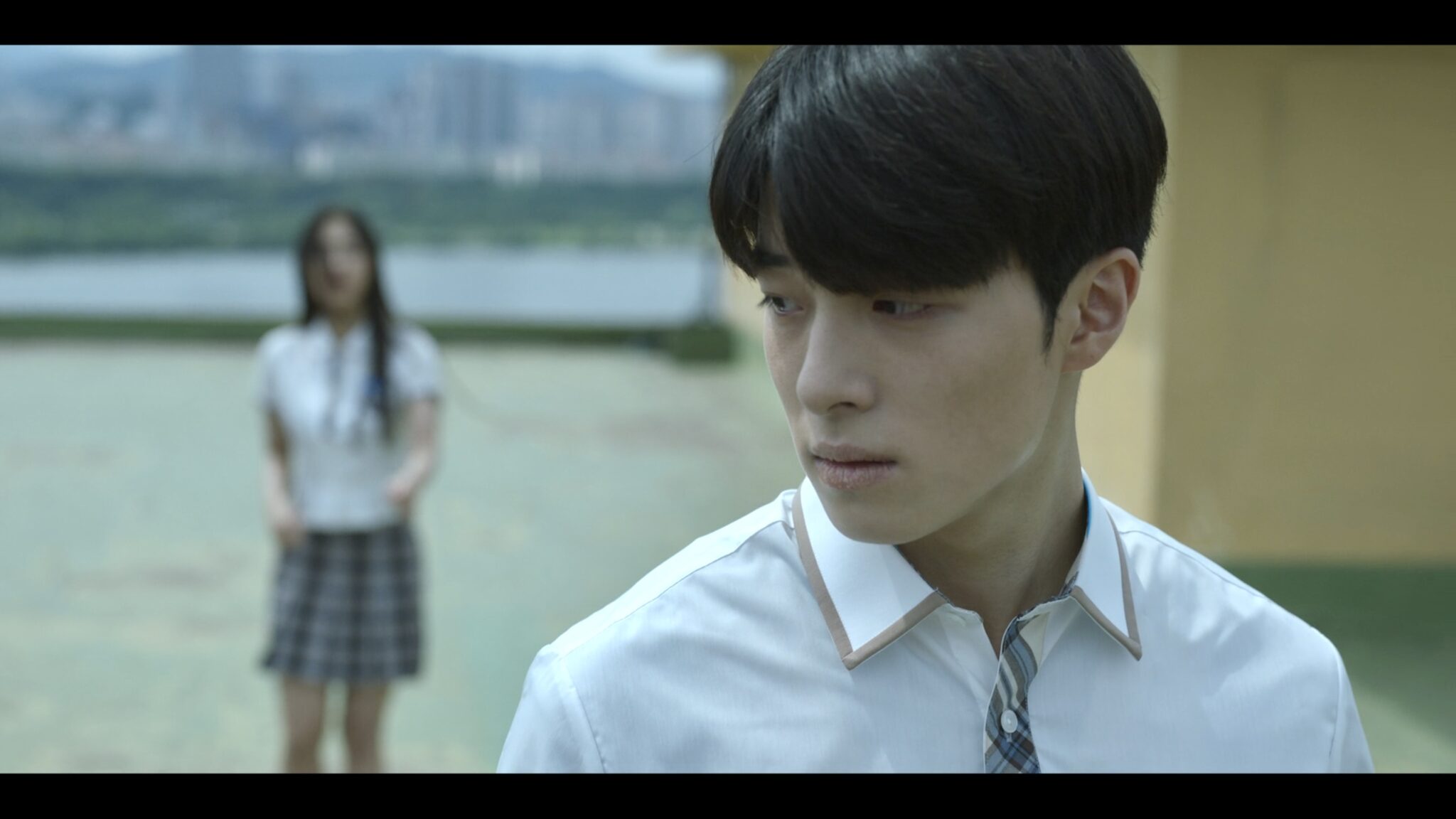
Thanks to Ri-eul’s high school classmate, we learn that young Ri-eul (Nam Da-reum, yay!) was more like Il-deung than anyone expected. A bright kid with a stellar academic record, Ri-eul had buckled under the expectations placed upon him. He’d gone from passing out in the hallways, to frantically studying even in the infirmary, to following an imaginary butterfly right off the school rooftop.
Ah-yi finally realizes that to her, Ri-eul had been the person he’d wished for but never had — someone to answer his desperate calls for help. He’d wanted to forever remain a child who believes in magic, because he was afraid of growing up in a world where even dreams have to meet a certain standard.
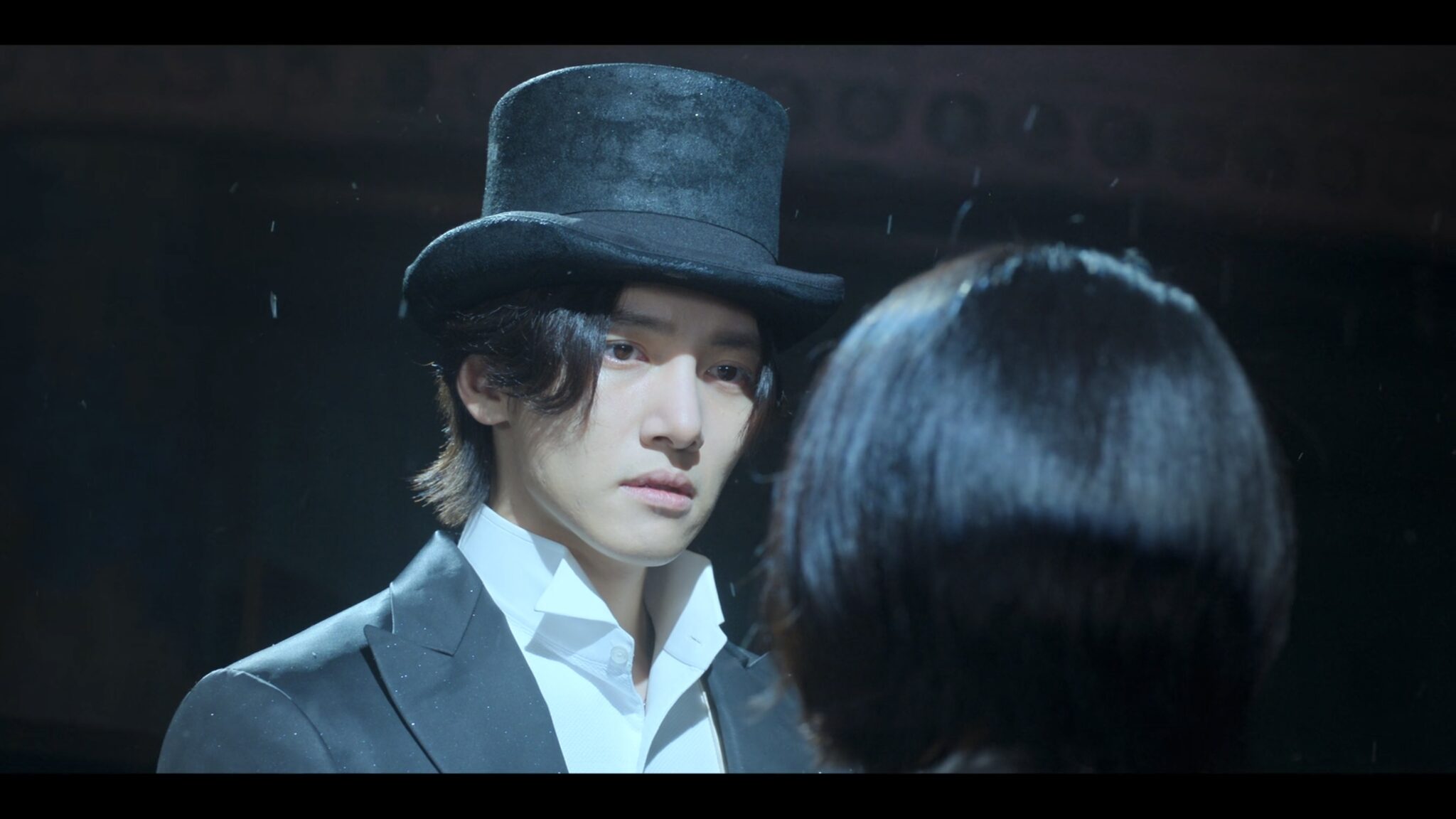
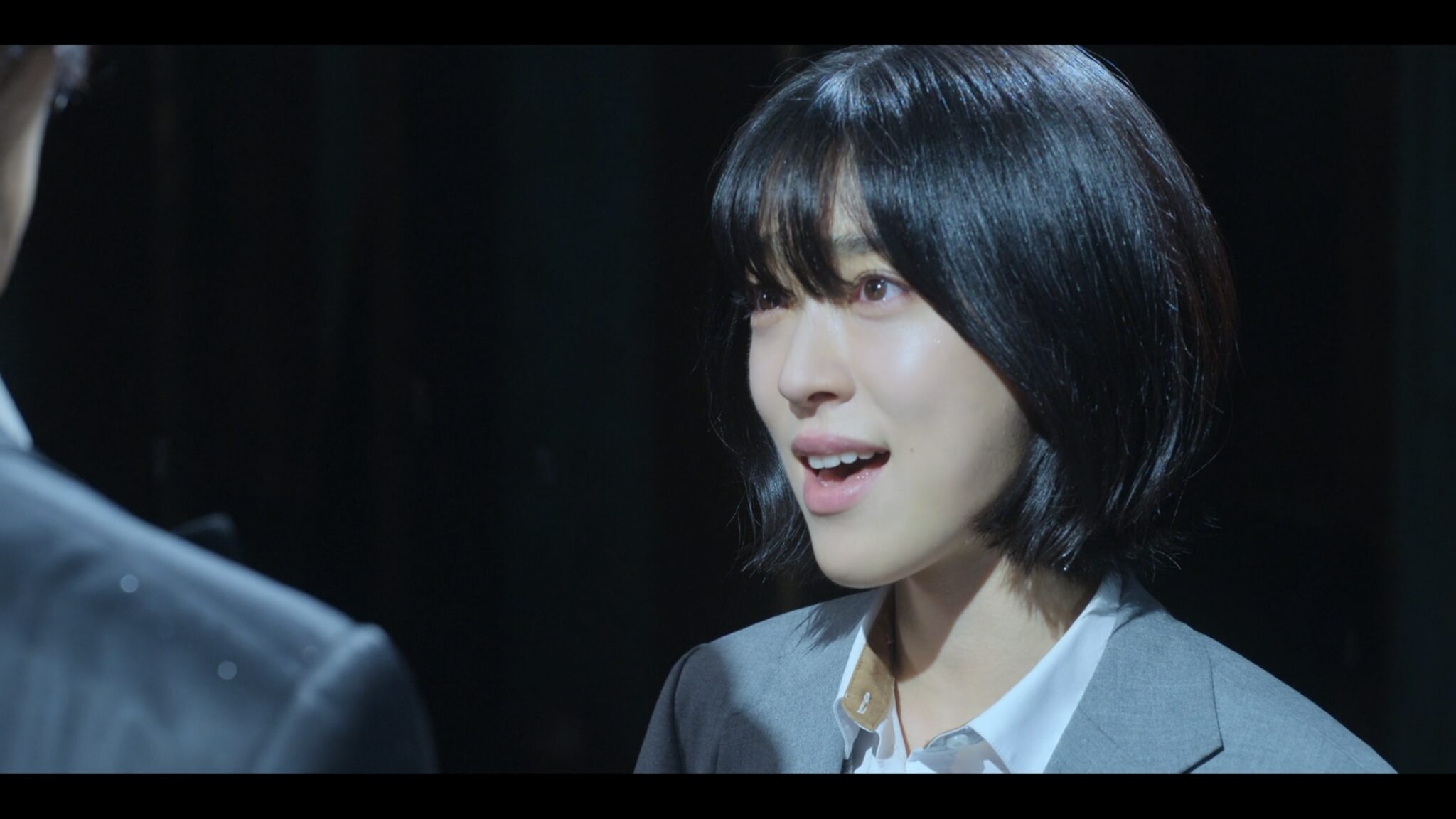
Ri-eul escapes from the interrogation room to put on one last show, where Ah-yi interrupts the confrontation between him and the police. She joins him onstage, a silent answer to his question of whether she believes in him. With that, snow begins to fall, despite it being indoors and in the middle of spring.
“Perhaps it’s not that you came to me,” Ah-yi sings, “you were waiting, and I noticed you.” It’s the first acknowledgement of his pain that Ri-eul’s ever received, and you can see it reflected in his eyes. Together, the two sing a heartfelt and wistful duet, and we see a young Ah-yi stick a bandage on young Ri-eul’s cast at the amusement park.
It’s unclear whether it’s a memory or a metaphor, but perhaps it doesn’t matter which it is. Either way, it reflects how Ah-yi recognized Ri-eul’s pain and sought to comfort it in an innocent and childlike way, just like how Ri-eul did for her, too.
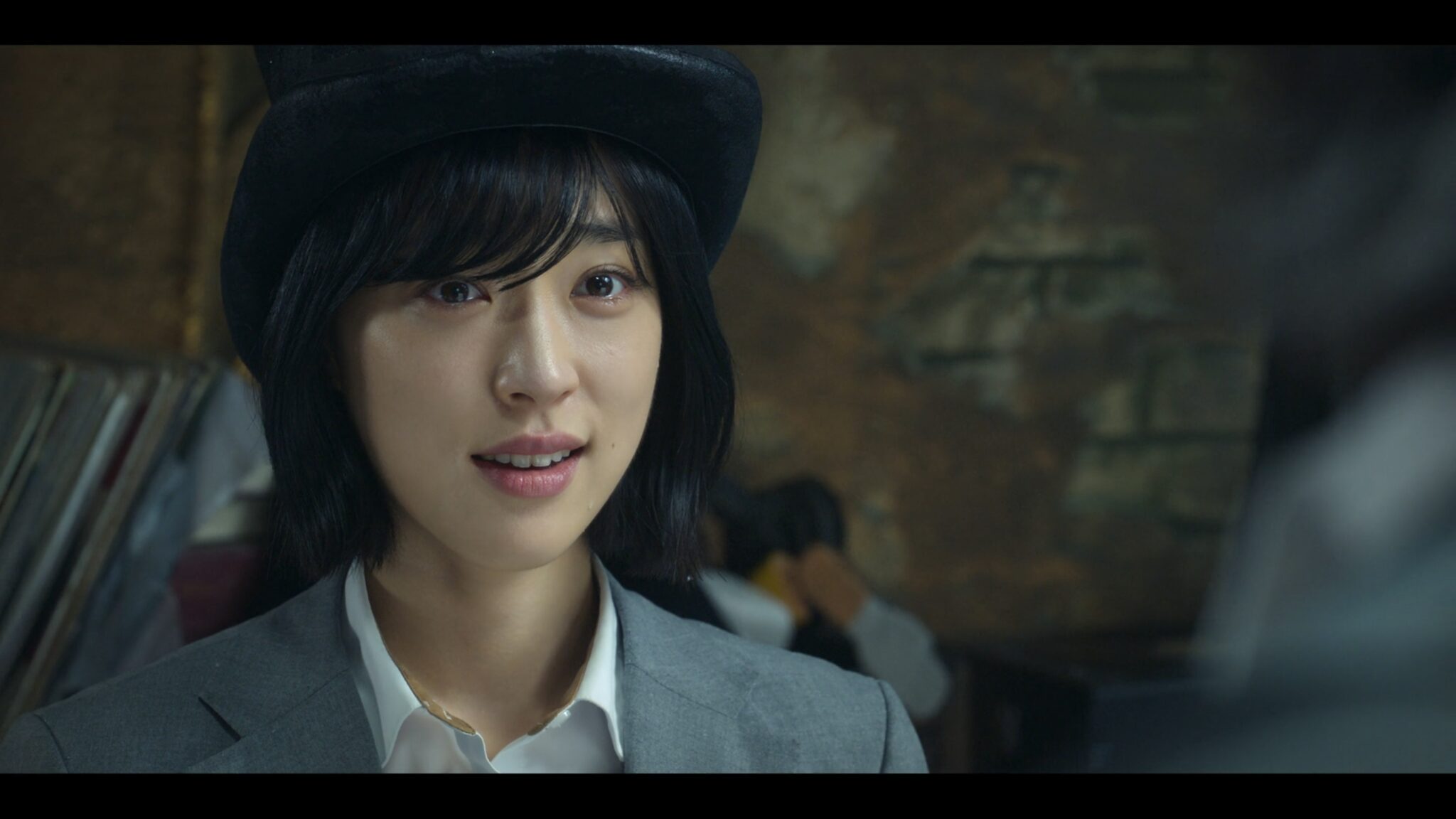
After their song ends, Ah-yi tearfully tells Ri-eul that he’s a real magician — he made her truly believe in magic. Touched, Ri-eul thanks her for making his magic succeed, then gives her his magician’s top hat.
He turns to leave with the police, but Ah-yi calls out to him. With a spark in her gaze and renewed confidence in her shoulders, Ah-yi asks him — do you believe in magic?
Uttering the magic words annarasumanara, she flings a black cloth over Ri-eul, and by the time it flutters to the ground, he’s vanished without a trace.
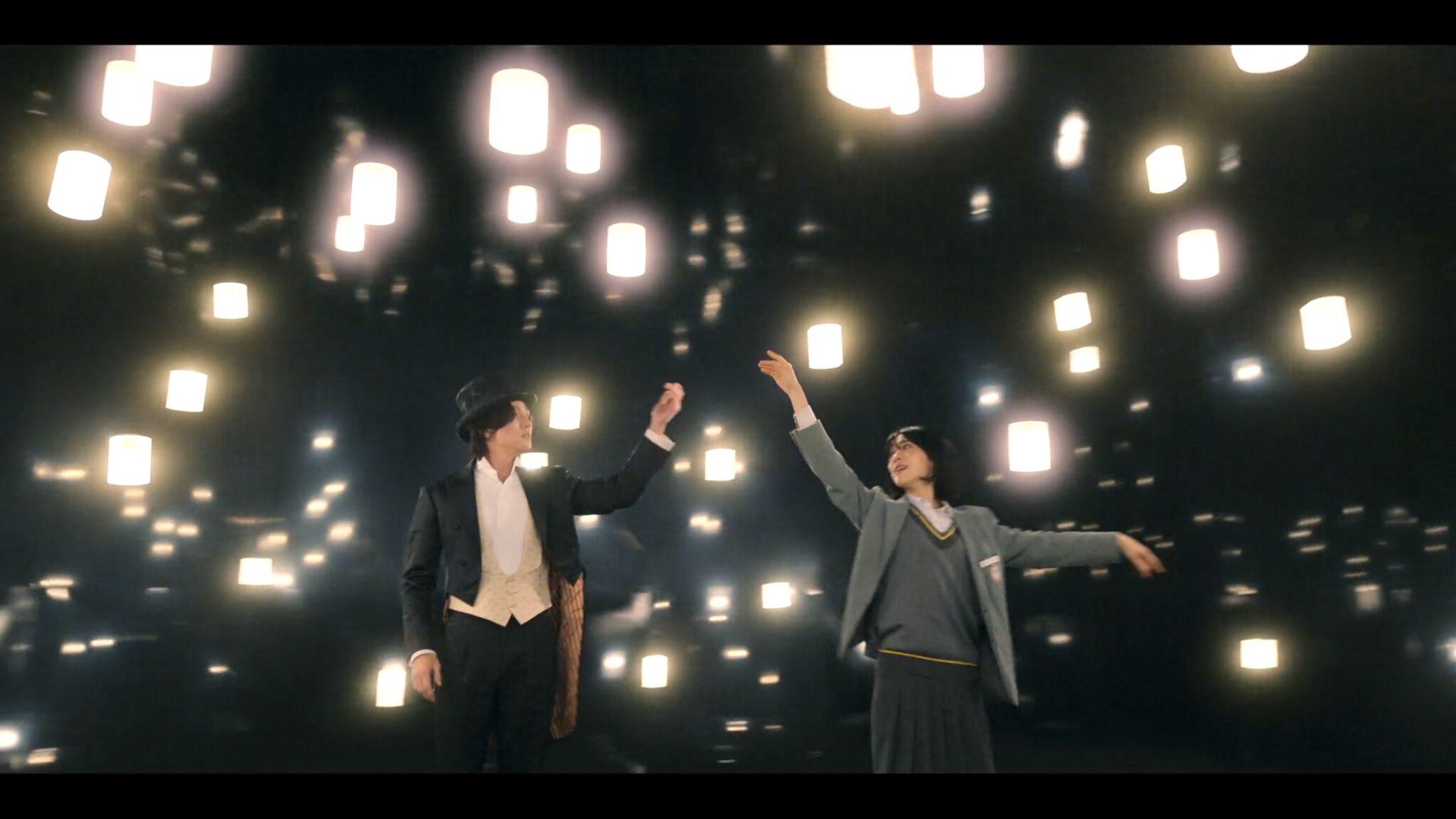
The story wraps up pretty quickly after that — in a series of exposition flashbacks, we learn that the true culprit of the murder was Ah-yi’s boss. He’d killed his part-time worker for blackmailing him with a video of his sexual harassment, and tried to pin the crime on Ri-eul. Luckily, his actions were all caught on a broken CCTV camera at the amusement park, which miraculously started working again during the few minutes of the crime.
Turns out, it’s all thanks to Ri-eul’s magical fireworks show the night he helped Ah-yi to believe in magic again. Somehow, his magic had lit up the CCTV too, becoming the crucial piece of evidence needed to prove his innocence. I like that it came full circle — his earnest desire to save Ah-yi from her sorrow ended up saving himself, too.
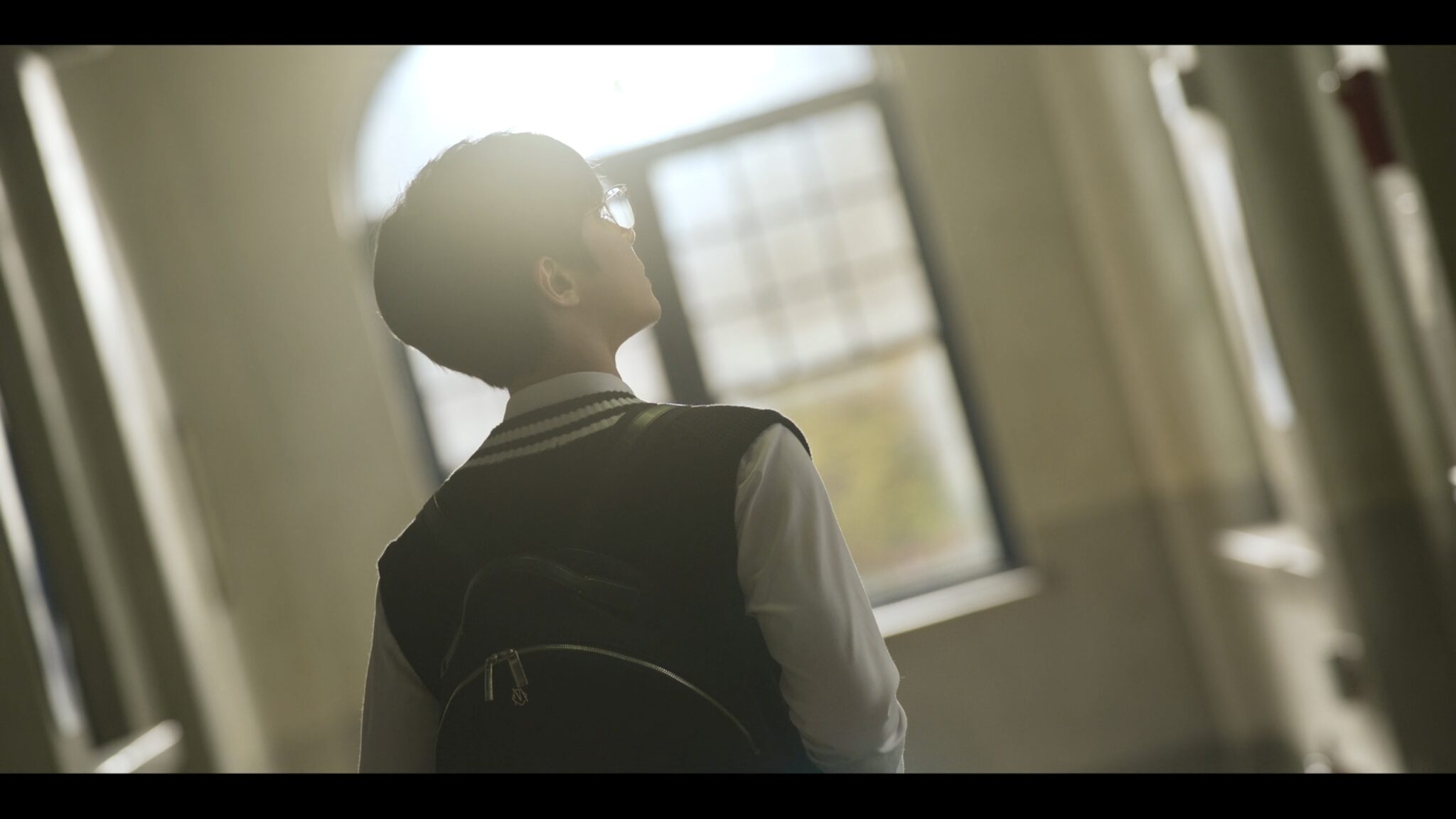
We never quite see what becomes of Ri-eul, but in a way I like that the drama chose to leave it ambiguous. This show has always been one that requires a little suspension of disbelief, and I thought it quite fitting that his ending was equally magical.
Just like Ri-eul, Il-deung drops out of high school, but while it was an escape for Ri-eul, it’s an empowering decision for Il-deung— one that he makes of his own volition for the first time. We aren’t told how it pans out for him, but there’s a lightness to his steps now that makes me think he’ll do well forging his own path.
Some time later, we see Ah-yi all grown-up, now a college student. She still writes letters to her mom, Ri-eul, and Bella through the magical mailbox, and while she’s still working part-time jobs, she’s still holding on to her dreams — aww, one of her jobs is performing magic tricks for kids! Ah-yi’s giving little miracles to children, just as Ri-eul once did for her, and I think it’s a hopeful and heartwarming ending to this tale.
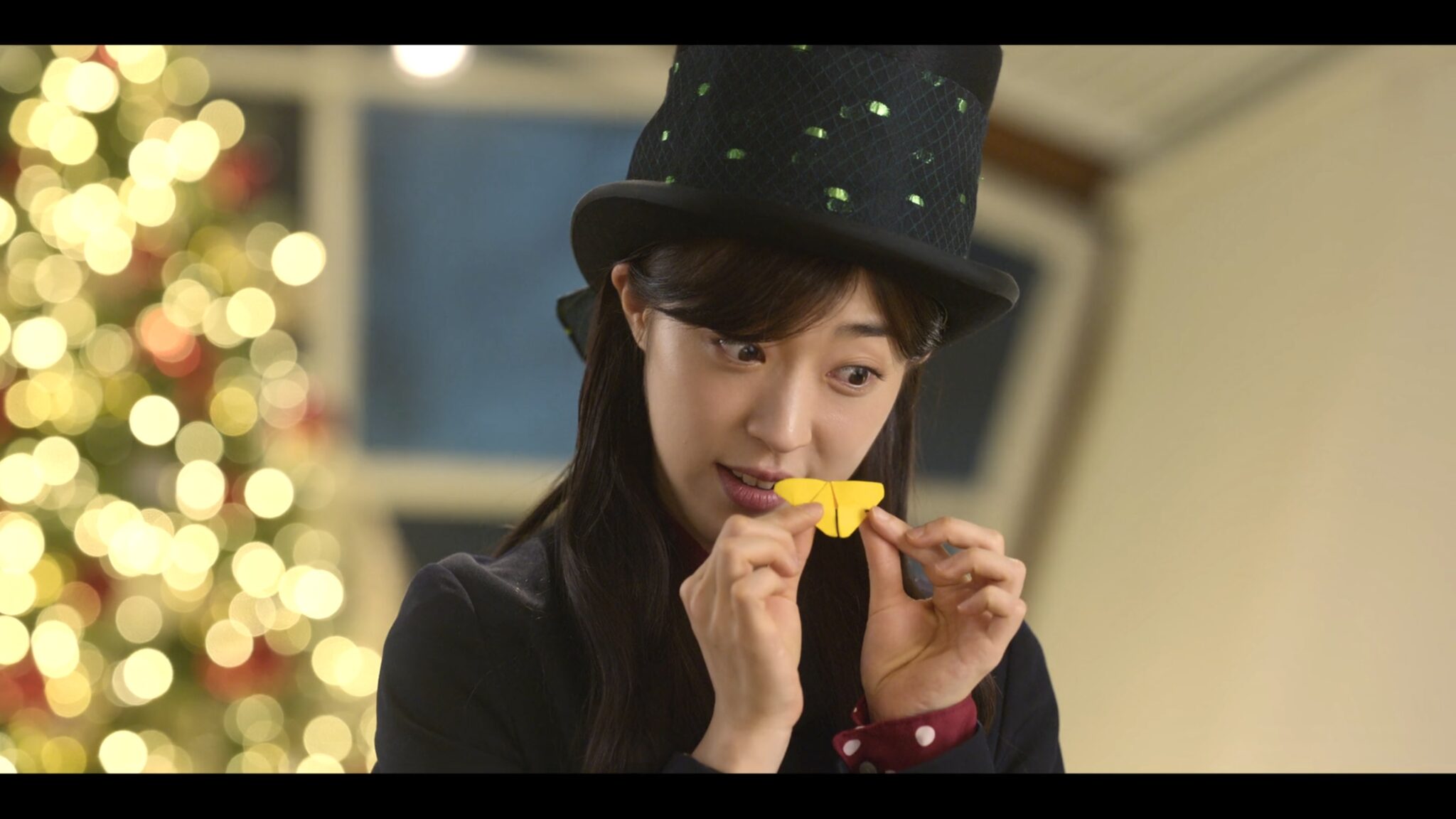
OVERALL REVIEW
Admittedly, the drama did play into some well-worn tropes — how many times have we seen a poor girl struggle to provide for her family, and how many times have we seen helicopter parents admonish their child for not living up to their unrealistic standards? Yet if we look past how trite these scenes may seem, I thought the way the show fleshed out its characters’ stories made their circumstances feel even more suffocating.
The webtoon achieves a similar effect with its breakneck pace, but I thought the drama’s approach made the characters more sympathetic. It allowed the actors to properly show off their acting chops, too — Hwang In-yup’s tearful confrontation with his parents was so good, making my heart hurt for him in all the right ways.
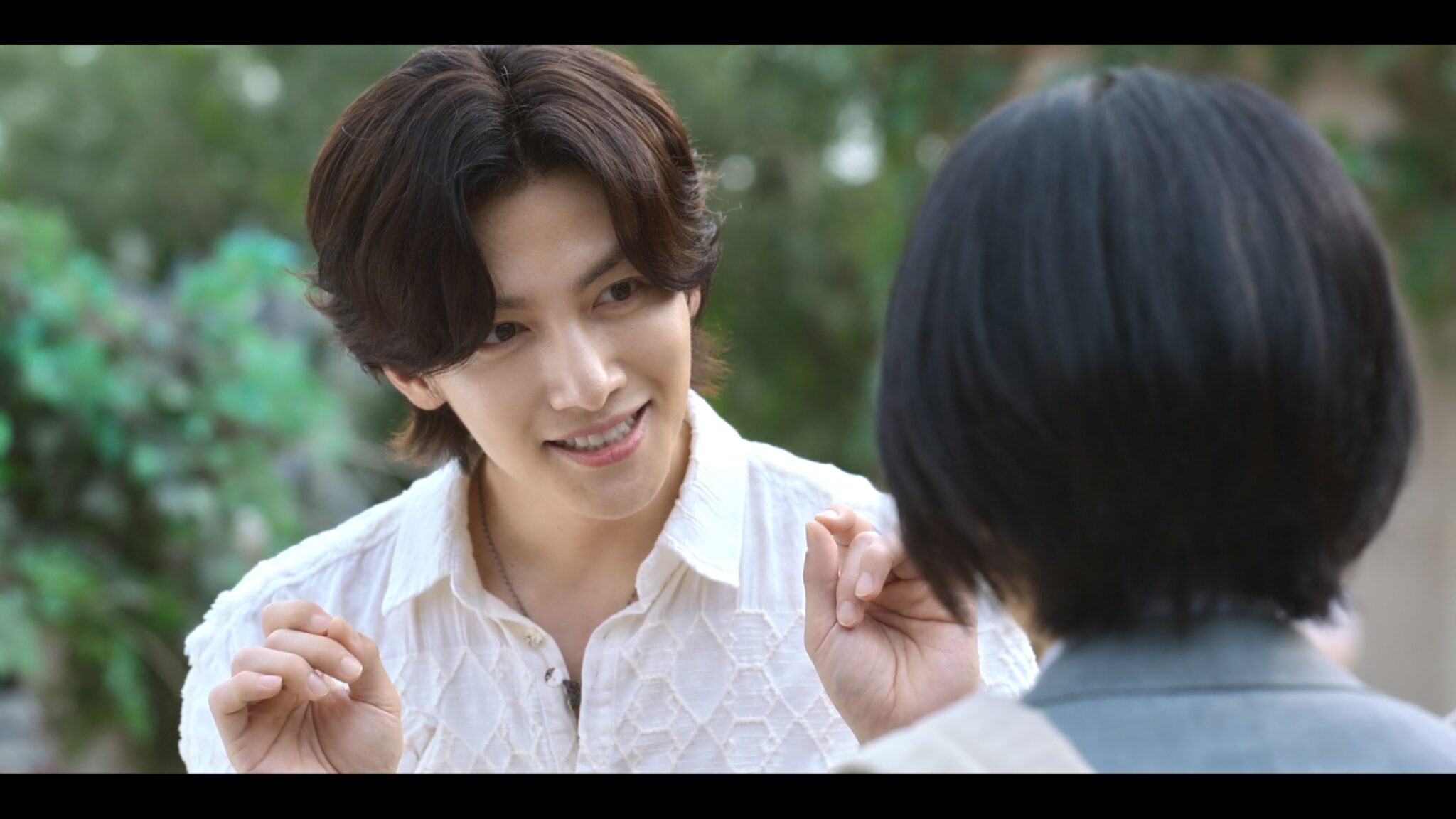
Despite my initial reservations, I thought the series was overall quite well cast. The actors really grew into their roles over the course of the show, coming to embody their characters in a way that was both faithful to the webtoon and uniquely distinct.
Once I managed to let go of the image of webtoon Ri-eul that I had in my head, I was able to appreciate Ji Chang-wook’s interpretation of the character on its own merit. Webtoon Ri-eul is enigmatic because you wonder what lies beneath his exuberant facade — is he truly that simple and childlike, or is there something more sinister lurking beneath? Drama Ri-eul, in contrast, is a little more standard creepy, but I think Ji Chang-wook’s choice to portray him in a more serious manner gave him an air of gravitas that grounded him.
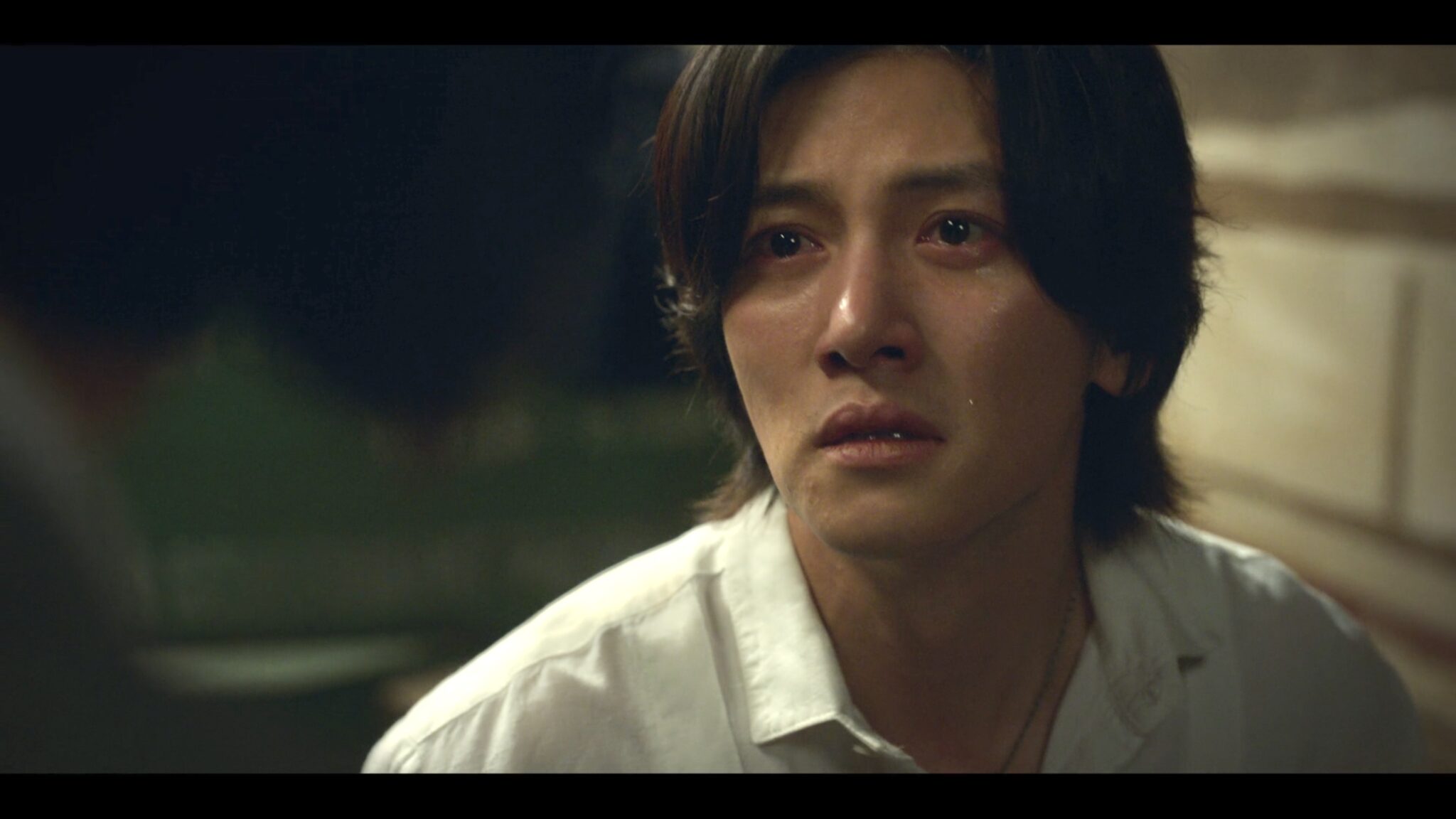
It did feel like he was still exercising a lot of restraint, though; I can’t help but feel that he resembled Ri-eul more when he was freely smiling and joking around in the behind-the-scenes videos. I think it would have been interesting to see a starker contrast between the carefree magician and the troubled teens, as the tonal discordancy would have reinforced how out-of-place Ri-eul is in society, while also adding to the fantastical atmosphere.
Still, I respect Ji Chang-wook’s interpretation of Ri-eul, and I think he did especially well in the scenes that called for emotion. The way he portrayed Ri-eul’s despair was so gutting in its rawness, and so was the childlike vulnerability in his eyes when he asked Ah-yi if she believed in him. By the end, I was charmed by his magic, and moved by his earnestness. (Also, he has such a nice singing voice!)
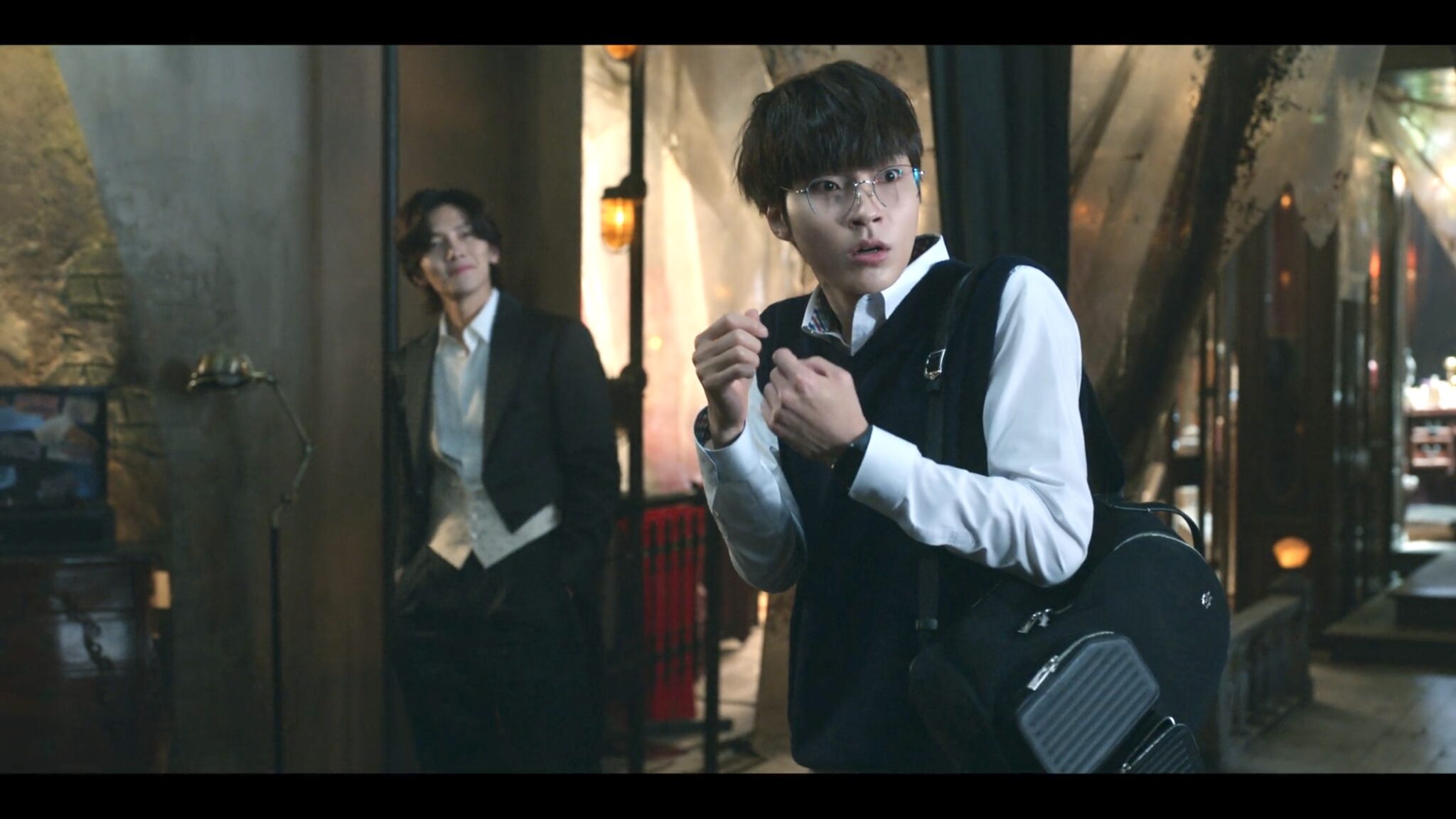
I know I said I wasn’t quite convinced by Hwang In-yup’s portrayal in the first episode, but I’d like to take it all back now — his performance in the rest of the show was so good! I suppose he was either finding his footing or holding back to reflect Il-deung’s initial stiffness. As Il-deung slowly began to acknowledge his repressed emotions and dreams, the life and conviction returned to his eyes bit by bit, and I thought Hwang In-yup did a remarkable job of expressing his inner turmoil and distress.
Also, he’s so good at acting smitten! The way he awkwardly circled around Ah-yi in the beginning was downright adorable, and I really have to give Hwang In-yup credit for being so believable as a lovestruck teenager when he’s over thirty.
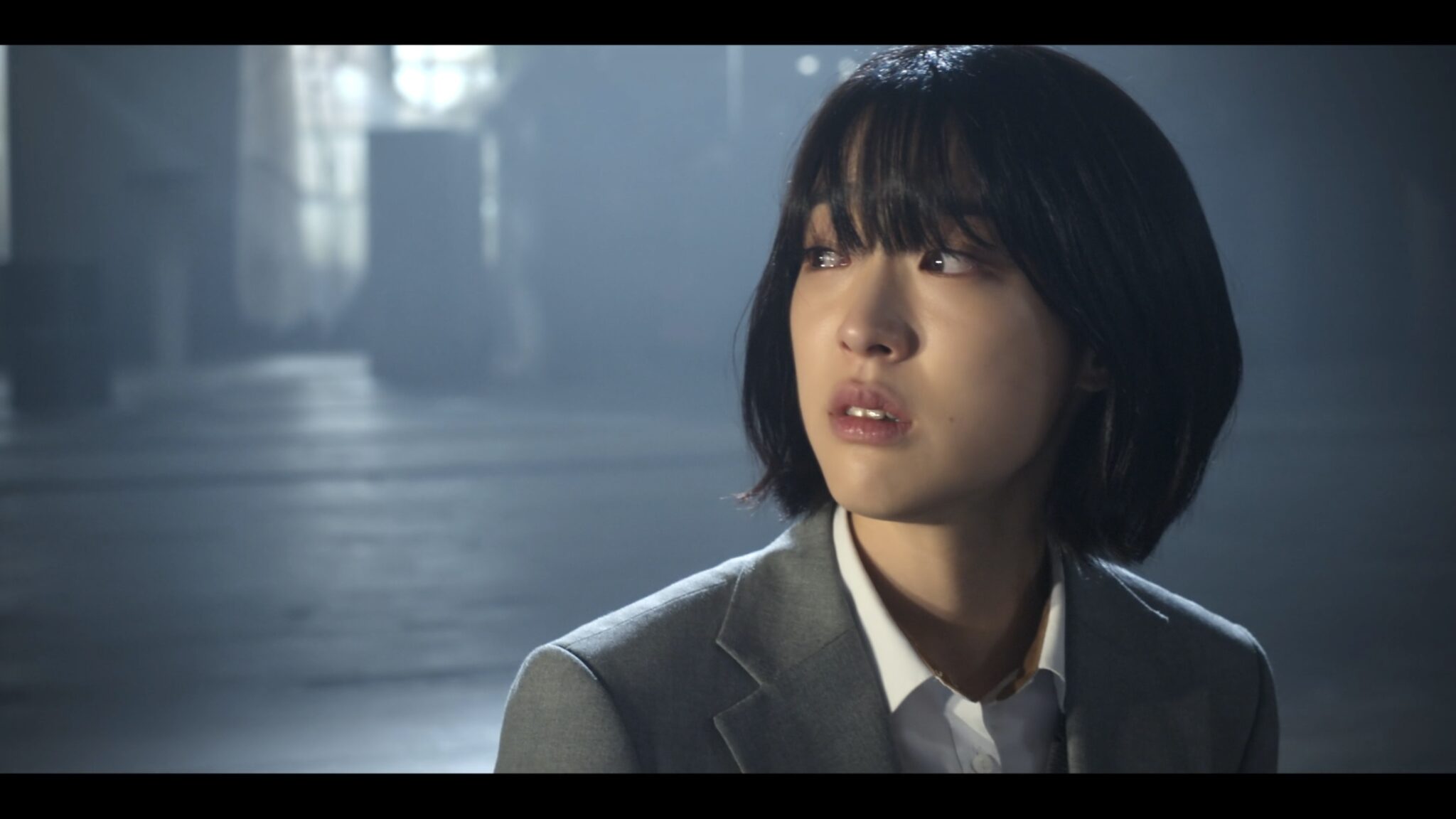
Last but definitely not least — Choi Sung-eun! Choi Sung-eun! Choi Sung-eunnnn! Gosh, I don’t know how to write this part of the review without simply gushing over her. I loved how she was expressive and heart-rending, but never over the top. She clearly has a very good grasp on displaying just the right amount, and letting the subtleties in her tone and body language fill in the rest. (The way her lips trembled and her voice quivered! I teared up so many times.) Given that she’s not a musical actor like Ji Chang-wook, I was even more impressed by her ability to seamlessly imbue emotion into her singing.
Choi Sung-eun embodied Ah-yi so well that I never once saw the actress playing a character, I simply saw Ah-yi. She elevated Ah-yi above the role of a typical Candy, making it clear that Ah-yi was more than the role society had forced her into. Ah-yi was a responsible breadwinner who kept food on the table even at the cost of her own dignity, a loving sister who cared deeply for those around her, and above all, a lonely child who just wanted to be allowed to dream again.
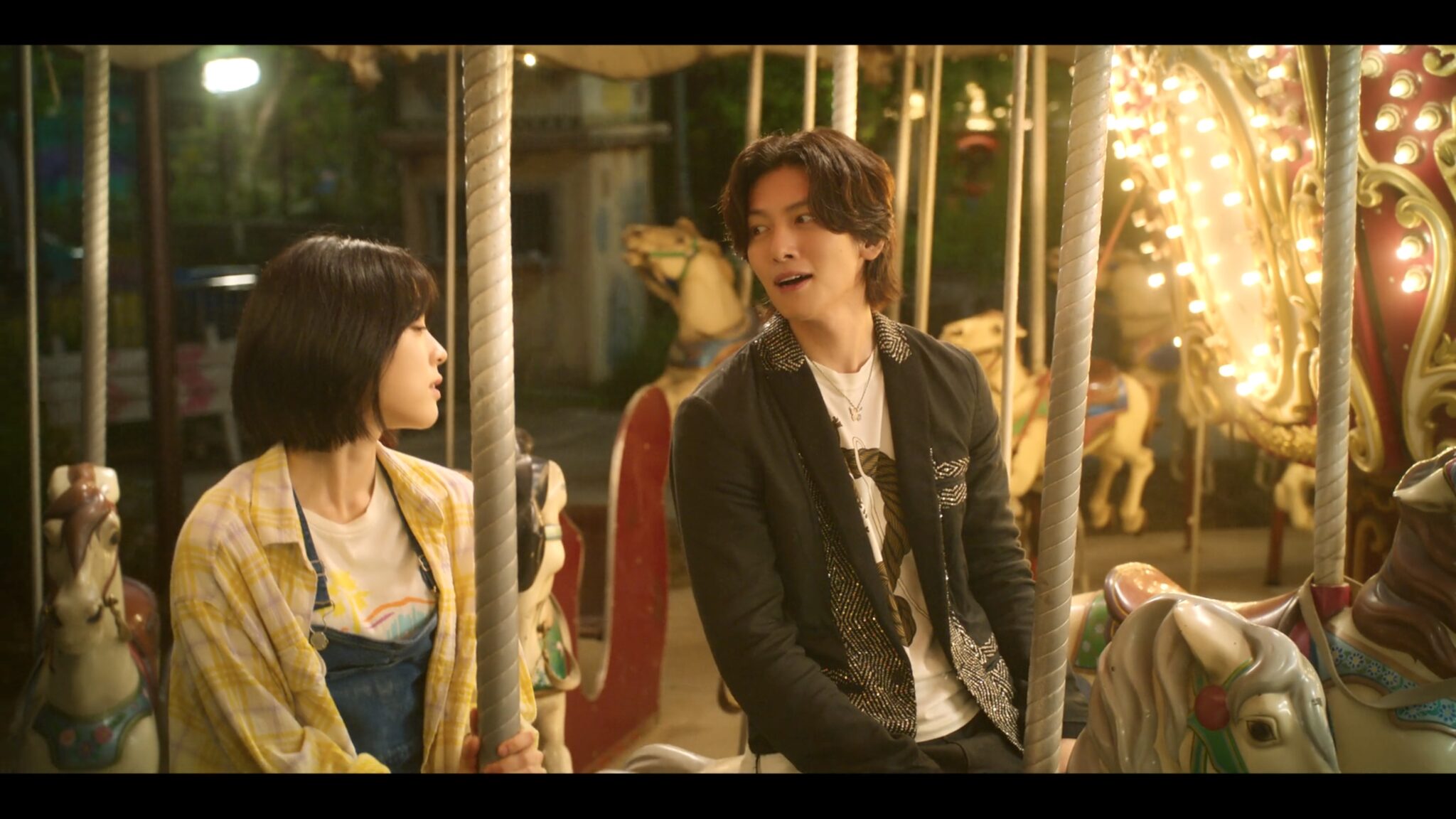
I absolutely loved the musical numbers, and even as I’m writing this, I’m listening to the soundtrack on repeat. The songs were so well-placed within the story, elevating important scenes and stealing my breath away even when I expected them. In addition, the quieter songs took me by surprise in the unexpected moments, and I liked that such understated scenes were lingered upon. It was heartfelt and evocative without becoming campy or pretentious, and the sincere and poetic lyrics by brilliant lyricist Kim Eana made me cry several times.
The original webtoon made use of mixed media, such as photographs and paper cutouts, to convey its surreal magic. While today’s CGI technology makes it easily possible to replicate all that with stunning visual effects, magic is more than just the spectacle. At its simplest, most genuine core, it moves the heart, and so I think director Kim Sung-yoon’s choice to use music as a medium made the emotions that much more palpable and touching.
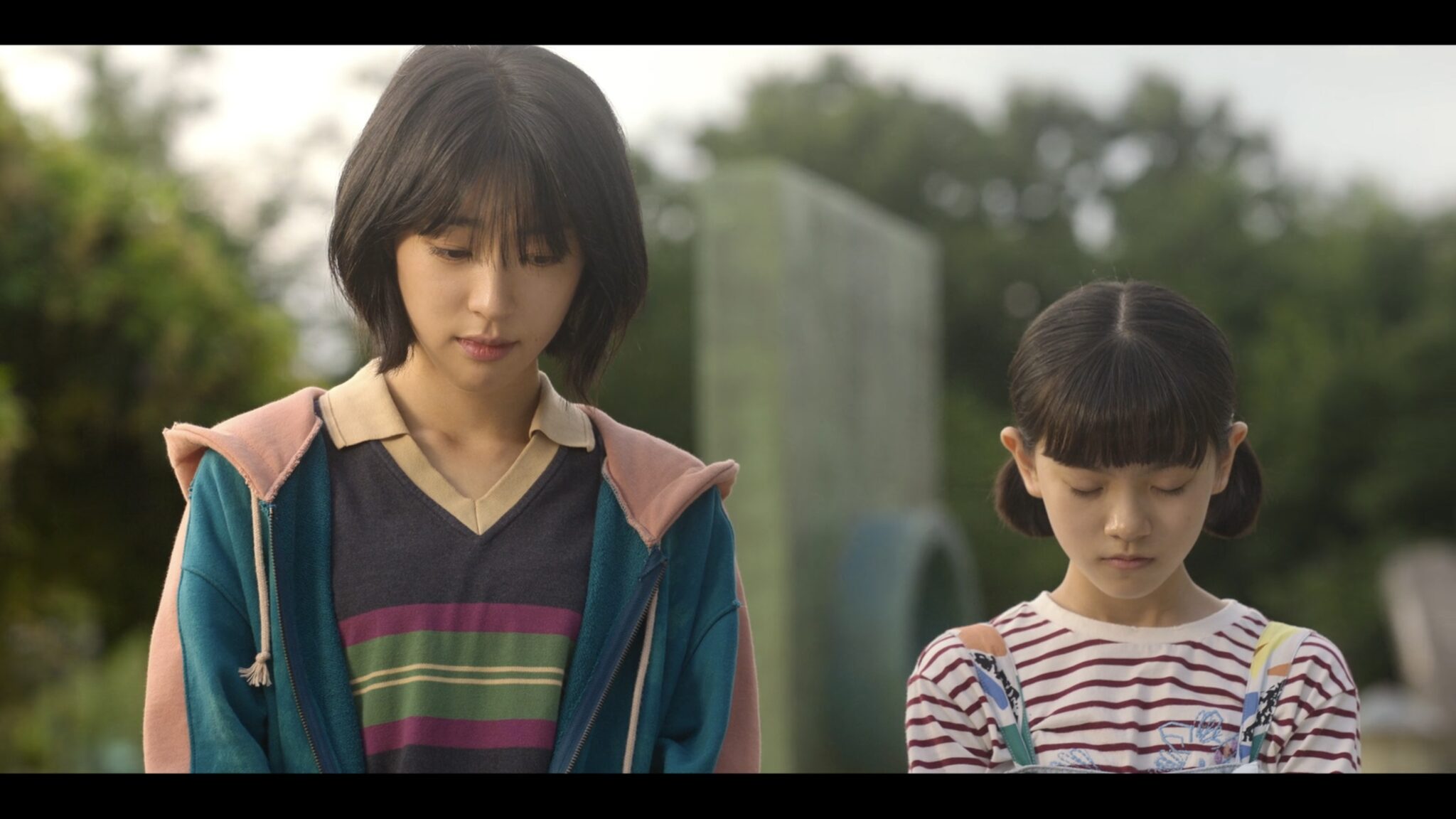
Also, I’d like to commend the show for its attention to detail, ranging from Ah-yi’s repeated outfits to her old phone with its cracked screen. It also made good use of a Chekhov’s gun; when Ah-yi first enters the convenience store, we see the high school student Ha-yoon leaving it, and the significance of that scene only becomes clear when the truth is revealed later on.
One gripe I had was that the murder mystery was drawn out a tad too long, taking up precious time that could have been otherwise spent on our main cast. The addition of this plotline was perhaps the most significant change from the webtoon, and while I suppose it made the stakes more dire, I wonder if it was necessary at all.
Still, I found myself choked up by the ending, and I had to take several minutes to gather myself. There’s something amazing about a show that makes you feel a whole gamut of emotions, even when you already know what’s coming, and The Sound of Magic was exactly that for me. It was by no way means perfect, but as Il-deung learnt from Ri-eul, perfection isn’t necessarily attainable or desirable. This show touched my heart, and that’s more than enough for me.
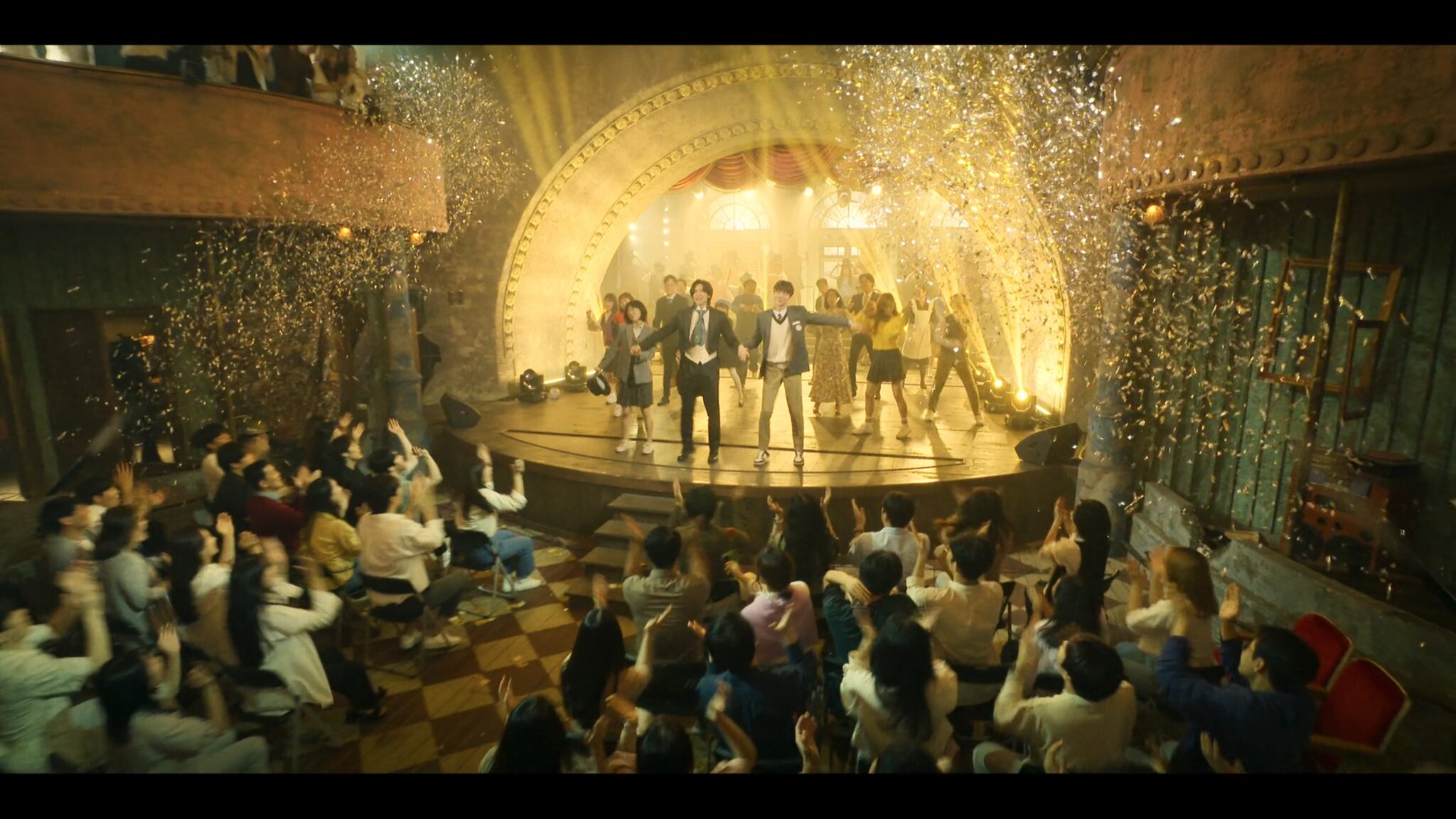
Also, I absolutely loved the post-credits scene, which was done in the style of a musical curtain call! It was such a sweet homage, and I love that the camera panned to the audience too, as if acknowledging the rest of the people that worked behind the scenes to bring this show to life. (I assume the audience was made up of the drama’s cast and crew, since I noticed illusionist Lee Eun-gyul, who was consulted for the magic aspects of the show.)
Taken objectively, the show treaded some very familiar waters, and didn’t quite subvert expectations or deliver jaw-dropping surprises. But The Sound of Magic was never meant to be a blockbuster hit, and I think it ultimately succeeded in telling a heartwarming tale that comforts and heals one’s inner child. My love for the original webtoon notwithstanding, this is a magical little gem of a musical drama that will linger in my heart for a long time to come.
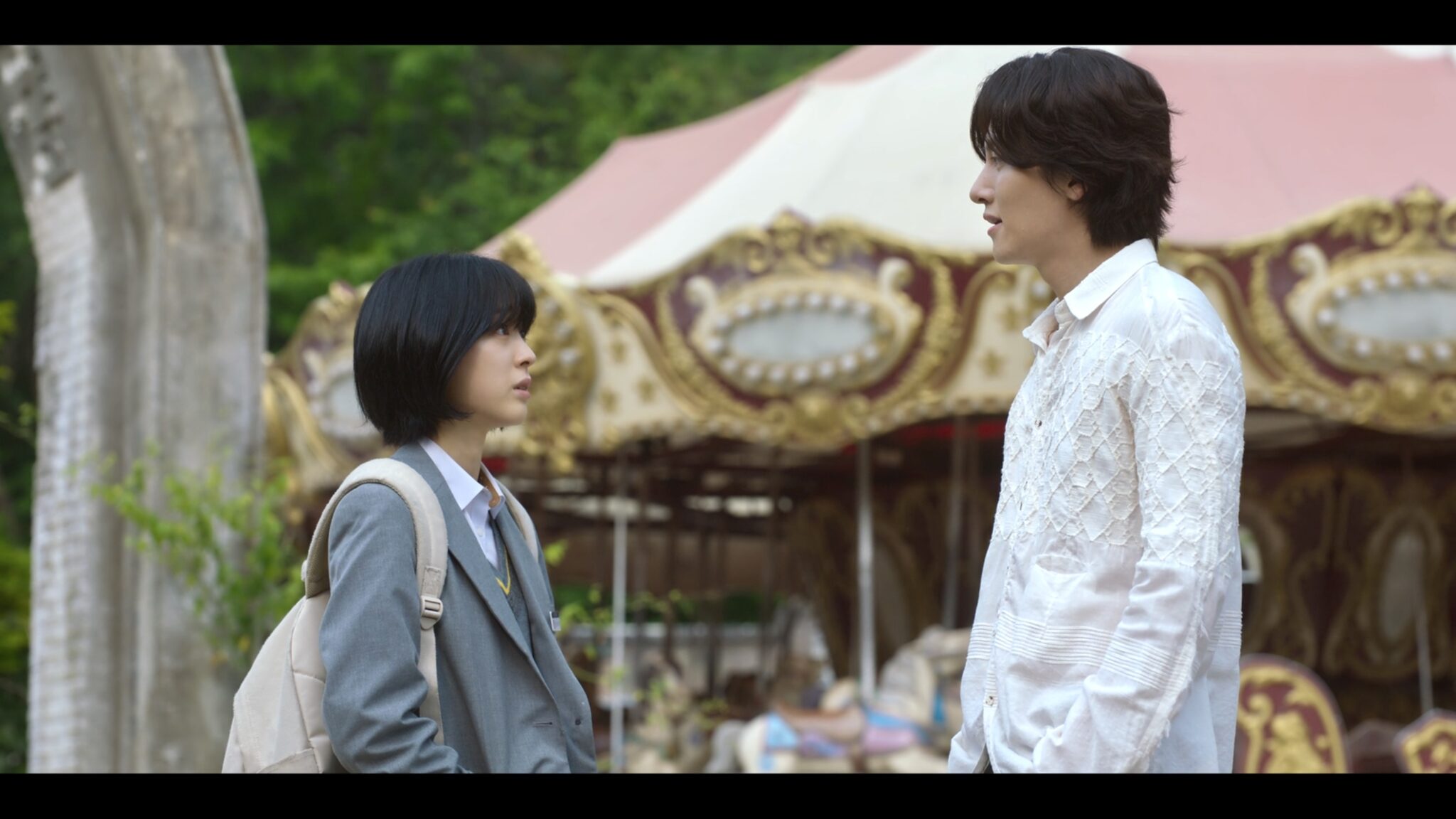
RELATED POSTS
Tags: Choi Sung-eun, Hwang In-yub, Ji Chang-wook, The Sound of Magic




![[Drama Chat] Rookie check-in (2024 version)](https://d263ao8qih4miy.cloudfront.net/wp-content/uploads/2024/05/LovelyRunner0910_14.jpg)

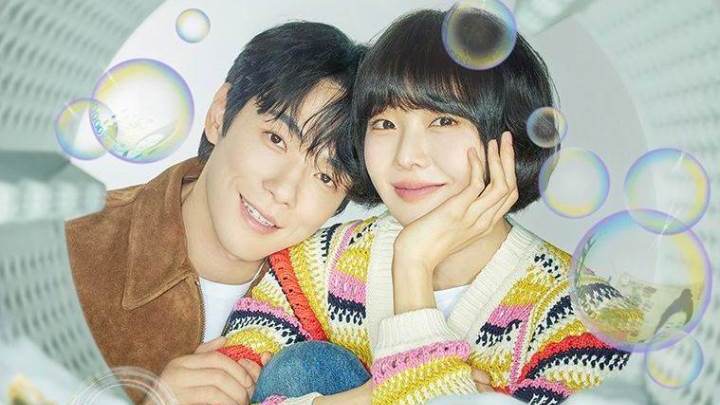



Required fields are marked *
Your email address will not be published. Required fields are marked *
1 Nefret
May 8, 2022 at 10:51 AM
If it wasn't for Ji Chang-wook, I probably wouldn't have been very interested in SOUND OF MUSIC. Since I'm not a fan of musicals, I was a little worried that the musical numbers would bother me. But they fit quite well and fortunately are not too numerous.
In the end, I'm glad I gave the drama a chance. It was worth the six hours, but it probably won't be a series I'll watch a second time.
It was certainly right to tell everything within these six episodes, though the content of the last two episodes would have been better spread out over the last three.
P.S.: Poor Bella :-(
Required fields are marked *
2 Kafiyah Bello
May 8, 2022 at 1:30 PM
I am honestly still not really sure what I watched. I kept forgetting it was a musical until I started singing and then I tuned out. The story was fine, if a bit generic. Was I upset I watched it? No, was I happy? also no.
Required fields are marked *
3 Elinor, Team Glasses team co-captain
May 8, 2022 at 2:20 PM
Wow! That really took a turn I didn’t see coming (I know nothing about the webtoon). It went from twee to tense in a heartbeat. I stayed up far past my normal bedtime watching this because it was so gripping. Now I know why Netflix isn’t marketing this to kids, despite the Disney-ish setting. I had doubts about the casting but the actors are utterly convincing in their roles, even if not in their supposed ages. Choi Sung-eun!!! And Hwang In-yup is so, so good. @solstices, thanks for the brilliant recap/review.
Ji Chang-wook’s singing is just terrific. His duets with Choi Sung-eun are nice, but when he lets his voice soar by itself, that’s the magic in this musical. I’d heard his OSTs from other dramas and they were fine but not amazing. His new maturity and power are really on display here.
Required fields are marked *
4 hacja
May 8, 2022 at 3:06 PM
First, @solstices, thank you for your recap/review. I really appreciated your knowledge of the original story, and your enthusiasm increased my appreciation of the show.
But did I, in the end, share your enthusiasm? I'm very sorry to say, no. I am of exactly the same opinion as @nefret and @kafiyah-bello, although maybe I'm a little favorably disposed to the musical aspect than they are. I was impressed with all the singers voices, I generally liked all the songs, and I actually think they added to the production. I also thought all the actors did an excellent job, although maybe I wasn't here I wasn't as taken with Hwang In-Yups performance. But that's because he is indeed getting a little too old to play a teenager.
Still, why did this show make so little impact, given its music and acting? I think it comes down to the writing and its theme. Its not just that every role was kind of cliched, its also that the theme equating magic and childhood joy and wonder is really hackneyed and trite. (I prefer From Now on, Showtimes representation of magic as the product of overworked and tried-upon ghosts.) The Sound of Magic's attempt to give the story a side darker than Ah-yi's desperate poverty and scurrilous Dad (as if that wasn't dark enough) still pretty much failed to add depth in my opinion.
I was born cynical--I started questioning my Mom's motives the second I emerged from the womb. So the fact I found no joy and marvel in magic and am unmoved by any story that pushes this theme, is definitely my problem, not an issue with the show. I am interested in how its done, and I admire the skill of magicians such as the late Ricky Jay, but that's more of an analytical approach and not a eyes wide-open gasp of wonder.
So in the end, I felt this show was definitely worth my time, and I would recommend it to others who are less jaded. But even with the music and the acting, it didn't do much for me, and (probably for the better), I won't be creating little paper butterflies to add joy to children's lives.
Required fields are marked *
sohalt
May 26, 2022 at 1:57 AM
I can relate, I'm also quick to find magical shenanigans too twee for my taste and was perfectly ready to remain unimpressed. Still, I think the magic here is just a metaphor for good-old fashioned therapy. Finding someone who listens, someone who helps you uncover your own blind spots and dysfunctional patterns. Healing your inner child.
The show establishes pretty quickly that magic won't materially solve any problems. One of my favourite scenes, the scene that really sold me on the show, is when the magican's money rain turns out to be play money and he gets beaten up by the creditors. That's probably also the right expectation for therapy. You still have to find all solutions yourself. But it fortifies the spirit, it puts you in a better place to be able to do that.
True, the story is another one of these hymns to "believing in yourself". The message isn't wrong just because it's trite. To thine ownself be true, etc. There's certainly a fair bit of power in believing in yourself.
But the story is also rather clear about the limitations of that power. Ultimtely Ri-Eul's magic can hold up in the face of disbelief only for so long. When the chips are down, he needs Ah-yi to believe in him to save himself. But you don't have to convince the world. One person is enough.
My origami skills don't extend to butterflies and I'm not going to upgrade them any time soon, but I've sometimes needed that person who believes that I know what I'm doing, even if it's not what anyone else would advise. And I really hope that at times, I've been able to be that person for someone else.
Required fields are marked *
hacja
May 26, 2022 at 8:13 AM
Very interesting interpretation that gives more depth to the show than mine. I'm still not entirely convinced, but I like what you are saying about the idea of magic as therapy rather than the idea of magic as optimism and wonder.
Still--even though, as you point out while the message believe in yourself isn't wrong, it also is not by itself enough. In fact, I say as a jaded cynic, one other person might be enough to bolster confidence in every day life circumstances, but it would not be enough to get a girl with no other institutional support out of desperate poverty. However, we're talking magic here, I suppose!
Required fields are marked *
sohalt
May 26, 2022 at 9:57 AM
Well, we do get a brief update that her dad shapes up a bit in the epilogue and starts contributing a bit more, and for what it's worth, the show doesn't actually claim she gets out of poverty. She's notably still pretty poor at the end. The boost of confidence is just enough to make her fight another day, and the show suggests that that's not nothing, after all.
This is another thing I actually really liked about the show - it thinks it's fairly consistently and even-handedly not just about the powers but also about the limitations of escapist fantasy, on the story and the meta-level.
Other commenters have remarked, how the show could be a lot more gratifying than it is. Our heroine never much catches a real break, no romance amounts to anything, she bonds with the magician, and the classmate, to a lesser degree, but they both disappear from her life (I really don't miss a romance subplot, but I was quite a bit sad that those two apparently didn't keep in touch at all in the epilogue). There's not much in terms of poetic justice either - the main villain gets caught, but the red-headed bully never has to face how mean she is, the adults remain fairly useless to the end. And most markedly we, the audience, never get a definitive answer to the central tension of the narrative - is Ri-Eul a real magician or just mentally unstable?
Although in my eyes, the show strongly suggests he is both. We get his backstory from a sympathetic, credible character who has no reason to lie. The emotional climax is a meeting between high-school Ri-Eul and child Ah-Yi at his most vulnerable moment, right after his suicide attempt - he has helped her heal, and now she helps him, bringing the story full circle. For this scene to deliver the carthasis it's clearly set up to deliver, the audience has to believe that his mental health issues are real. But so, we are shown, is his magic - the broken camera really went on at the crucial moment when he lighted up the park for Ah-yi, he really disappeared right in front of the police's eye.
I actually really like this conclusion. I don't think the mental problems undermine the magic. If magic existed, I don't see why it would be reserved for the mentally stable. I think this contributes to an overall message of taking mental health seriously, and destigmatize needing help in that regard.
I think that by denying some of the more immediate gratifications an audience could wish for with this sort of story, the show ultimately arrives at something deeper after all.
Required fields are marked *
5 Kurama
May 8, 2022 at 9:12 PM
Sadly, the magic didn't work on me.
I wished a better balance between the magic (hopes) and sadness. But this drama was completely depressing. The question between real magic or trick was the saddest part for me. I think I wanted a full magic show, I guess I'm like the hero :p
I'm a little bit tired by the candy character when everything is so dark in her life, like the FL in Love Alarm. In the same time, we didn't really see her earning money except at the beginning but the owner disapeared and she didn't go anymore... So she's very poor but goes to school and learns magic.
Il-deung was typical too but I guess him falling for Ah-Yi was cute to see. I don't understand why they needed a 30 years old actor to play him. I don't think this character was so difficult...
I liked Ji Chang-Wook in this role. He suited the costumes :p
For the musical parts, I have no issue with songs in movies ( I mean I love Disney animes) but the songs didn't work for me. It's not a style that I like, so I wanted to forward the musical parts but in the same time, they were about the characters feelings so important for the story...
The direction was really good. I liked the different places, the magic, the lights, etc. I loved the scene with the bubbles!
Required fields are marked *
Kurama
May 8, 2022 at 9:18 PM
Oh, I was surprised to see so many actors I knew :
- Lim Ki-Hong who is acting in Sh**ting Star
- Yoo Jae-Myung
- Kim Hye-Eun
- Choi Young-Joon way more charismatic than in Our Blues :p
- Yoon Kyung-Ho
- Ryoo Kyung-Soo, his second drama with JCW
- Nam Da-Reum, it was a good suprise :)
- Yoon Sa-Bong, she was in Forecasting Love
- Woo Mi-Hwa, the step-mother in Hometown Cha Cha Cha
Required fields are marked *
6 Angela Estrada
May 9, 2022 at 8:28 AM
Un drama maravilloso, excelente actuación, música, baile y la voz bellísima de Ji Chang Wook 💖💖💖💖💖🇬🇹🇬🇹🇬🇹
Required fields are marked *
7 Dayiinez
May 9, 2022 at 8:47 AM
Solo puedo decir, WOW, quedé encantada con este drama, sin duda tiene mi completa recomendación para quien pregunte, me hizo recordar lo bellos que somos de pequeños, porque no tenemos los límites que formamos cuando crecemos, que todo nos parece mágico, fácil, maravilloso, además son duda amé la letra de las canciones, tienen tanta enseñanza que me gustaría que todo el que lo vea, le preste la debida atención a ellas. El plus sin duda fue Ji Chang Wook, creo que por el tipo de drama no le habría dado la oportunidad si no estuviera él 🙊 lo siento, pero es la verdad 🙈 y super valió la espera 😍💜🇲🇽
Required fields are marked *
8 Nancy
May 9, 2022 at 9:31 AM
There are multiple reasons to enjoy The Sound of Magic,🤩 full of fabulous music, Fantasy, illusion, enhances trying to recover the good memories and innocence of being a child; It especially shows us the best Magician Ji Chang Wook who stands out by playing the role of an adult who does not want to stop being a child, very moving and unforgettable full of emotion. I think we can wait for a second season because it's just Magnificent!!!! /
Existen múltiples razones para poder disfrutar The Sound of Magic,🤩 lleno de música fabulosa, Fantasía, ilusión, realza el tratar de recobar las buenas memorias e inocencia de ser ñiño; en especial nos muestra al mejor Mago Ji Chang Wook quien destaca al interpretar un rol de un adulto que no quiere dejar de ser niño, muy conmovedor e inolvidable lleno de emoción. Creo que podemos esperar una segunda temporada porque es simplemente Magnífica!!!!
Required fields are marked *
9 LizJ
May 9, 2022 at 9:52 AM
I've got similar feelings about the drama to some of the other posters here. An interesting experience, but I didn't love it. I'd likely recommend it for fans of one of the actors, but not to casual/new Drama fans. And it's difficult to define the intended audience. Clearly not for kids, and questionable for teens that may have some emotional challenges or be triggered by some of the depressing content. But being high school centric, it's hard to recommend it to adults past mid twenties.
I found the tone of the show very depressing and felt that the writing and directing played too much with the question of whether Ri-eul had a dark side. As much as I wanted to love him (since he's played by Ji-Chang Wook), his character definitely triggered some uneasiness in me (strange lonely man in an abandoned amusement park draws in troubled teenagers - did the term "grooming" potentially come to mind for anyone else?).
I think I would have liked this show better if it wasn't a musical - I know a lot of people love that aspect of the show, but to me it took away from the story.
Required fields are marked *
Isegrimm
May 9, 2022 at 10:06 AM
My thoughts exactly. Ah-Yi and Ri-eul were never on eye-level and I felt extremly uncomfortable with the storyline at the beginning. Not to say the acting was bad, because it really wasn´t. But it took me ages to get attached to the characters and all in all Ah-Yis situation was so depressing, that I found it hard to forgive all the adults that let her down, especailly her father. I know, the show is made after a webtoon, but this was hard to watch. The ending, however was lovely. But this will never be one of my favourites.
Required fields are marked *
10 pohonphee
May 10, 2022 at 8:24 AM
I finish this with struggle. Keep skipping the musical parts. A for new format, B for content.
I almost wanted to slap Ri-eul for taking Ah-yi's hard earned money. Dramas about teenages' struggles (Extracurricular, Juvenile Justices) always get me, like this is our failure as adult that makes them have to going through what they have been going through.
I can see why everyone loves Hwang In-yeob. He looks like Lee Joongi's younger brother. Not and inch of 30 y.o. What happen to his character in the last ep? He vanish.
Required fields are marked *
11 Messy
May 10, 2022 at 8:27 PM
Actually I was expecting an explanation from the review about the disappearance of Ri-eul. So I guess that eventually it’s up to anyone’s interpretation. I am thinking that Ri-eul doesn’t exist at all, he’s just a figment of anyone’s imagination. People will see him as according to their own needs and wants. To those who are crying out for help, he gives hopes and dreams back to them. He’s the reflection of the demon and angel that lives within all us. To the detectives, he’s an escapist from a mental institution. To the murder, he’s a threat. To those who see him creepy and dark, that reflects the unhappiness in them. To those who see him being vulnerable, that would reflect the kindness and empathy in them. Like the movie Fight Club, it’s all inside their heads.
I believe this is reason why lately JCW had said that he likes that movie. 🤔😂
Required fields are marked *
Messy
May 10, 2022 at 8:46 PM
Oops typo correction ...to the murderer, he’s a threat.
Must give kudos to solstices for the exceptionally good review here 🙏 and for especially being so wonderfully kind to the leading cast, namely Ji Chang Wook, Choi Sung Eun and Hwang In Youp. These days so much is expected out of actors to give sterling performances that sometimes we tend to overlook the fact that success of a drama actually depends very much on a bigger scope of cooperation that includes the director, crew, technicians and most importantly, the storyteller. Kindness is a virtue, so let’s us all please be kind to the actors who are doing their very best to make this drama a success..🥰
Required fields are marked *
Messy
May 10, 2022 at 11:28 PM
So do I believe in magic? I don’t think so 😂
But I do believe in human kindness, compassion, hope, truth, charity and generosity. And that butterfly 🦋 is the embodiment of these loving qualities. Depending on each individual’s needs and that butterfly represents an answer to those needs.
I should add to that murderer, Ri-eul is like a cloak of menacing shadows lurking around dark corners. But to those who see Ri-eul as lonely and vulnerable are in fact compassionate people who empathetic and understand the suffering of others. So the bottomline is how you see Ri-eul is actually how you see yourself 🤔🤔
Required fields are marked *
Messy
May 10, 2022 at 11:43 PM
For those who are interested to know the movie Fight Club, Ri-eul is kinda like in the role of Brad Pitt, who isn’t really there, never existed.
Required fields are marked *
12 LemonyLite
May 13, 2022 at 1:31 AM
I checked this drama out for Ji ChangWook and I am so happy I did! I was surprised at how much I enjoyed it!
Required fields are marked *
13 FireStar
May 13, 2022 at 4:38 PM
I thought Choi Sung-eun was great, I loved the visuals, and general mood of a lot of it. I thought Ji Chang-wook was really good in the playful magician parts, the rest not as much.
Overall though, this was such a messy show. The murder subplot, the other two girls at school, they just felt ill thought out, and they dragged. Also... Il-deung's story held no appeal for me, I get that they were trying to draw the parallel to set up a backstory for the Magician, but he was just not an engaging character, I didn't see why I was supposed to care. I also felt like... why do I need a backstory for the Magician? I think of a book by the great screenwriter William Goldman where he talks about how actors and producers always want to fill in tragic backstories for the mystery character... and it makes the character worse... it doesn't matter to that character or our lead about his past, he is a device to show us something about our lead.
Overall I think this is a show worth watching, especially at only 6 episodes, but I'll remember it as a show with 1 great performance, a lot of promise, but ultimately lacking in execution
Required fields are marked *
14 Charlotte
May 19, 2022 at 1:13 AM
I'm so glad I stayed around for the curtain call. It really lifted the heavy..."is that all there is?" cloak of existentialism that had fallen over my thoughts. For me this drama was more done well, than 'well done!'. It's hard to figure out why exactly. Likely because I'm not a fan of musicals. The scores or lyrics were good, except that those lyrics seemed to 'tell' viewers what was going on inside the characters heads, instead of allow them to 'show' it. I felt like I was watching psychological subtitles wreathed in music lyrics to help us understand the story better. I liked the actors a lot. All of them tucked very nicely into their characters. I really felt Nil Deung's choked & desperate frustration over his choices in life and his questions about the future. And then of course, Ji Chang-wook was able to charge Ri-Eul's soulful eyes with flickering angst right from the very start, hinting at his wounds, even when he was his most confident self. Such a great character. I did struggle with Ah-yi's passivity in so many situations, however I kept reminding myself that being desperately poor and without parents sucks agency from your life. Finally, I wish there had been at least one adult parent or teacher that we could have admired in this to offset the Peter Pan-esque warning not to trust 'grown-ups'. The adult police officers were far nicer than the parents and teachers on whom kids must rely on the most. I also wish we could have seen the future for Nil Deung, especially with his parents ten years later. Plus a nice comeuppance scene for red-headed mean-girl. All in all, it was something different & interesting to watch, but the message wasn't unique and didn't sell to me, which is strange, because I do believe in 'Magic'.
Required fields are marked *
15 dapplegrey
May 24, 2022 at 5:26 AM
I have to say I was disappointed in this show for all the excellent acting and sets.
The Bella incident was so sad but although I completely understand Ri-Eul fury and devastation at what happened, did he really need to nearly strangle the mean schoolgirl? Could he not have cast some sort of a spell on her?
When Ah-yi performed a truly remarkable magic trick, surely the police would’ve been more surprised?
The magic seemed a bit arbitrary I thought.
I did like the scene when Ri-Eul vanishes from the police station - it reminded me of a similar scene in My Love from the Star.
Required fields are marked *
16 isa: I'm not a serial killer I'm just really passionate about things
May 24, 2022 at 8:28 AM
ISWAK/TKA is my favorite drama. TKA is arguably better than TKA but you have to watch ISWAK first so that all the emotional beats hit as hard as their supposed to. The first 5 eps of this drama aren't the best but you have to watch them so that you can fully feel the weight of the 6th episode. You need the breakneck pace and the suffocation so you can feel it when the characters can finally take a breath.
I don't know if I can say I *enjoyed* the experience. But I liked it overall. il-Deungs first song on the asphalt road was exceptionally well done I thought. But, I loved that Ah-Yis circumstances didn't necessarily change (though her father did start chipping in) she's still working, she's still her sisters primary care giver and years after high school when she's "all grown up" she's still in the same situation her outlook changed. Her life changed by meeting Ri-Eul. He gave her hope and permission to dream and that gave her a lightness that she didn't have. I love the finale. The first 5 eps are worth it to get there.
And I *do* believe in magic.
I don't care what anyone says. Ri-Eul made creepy creepers on disappear and no one will tell me any different!
Required fields are marked *